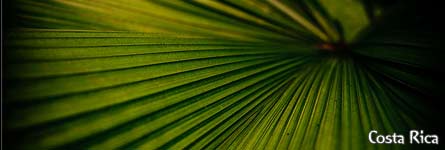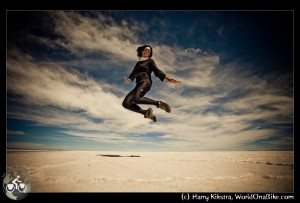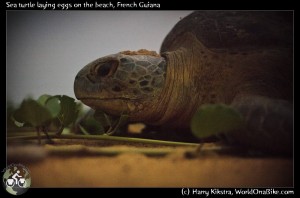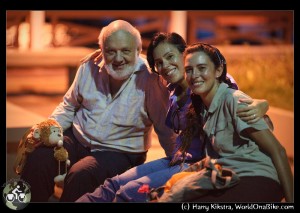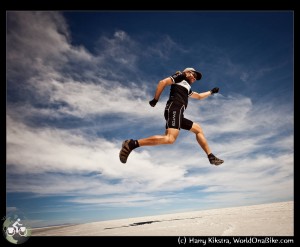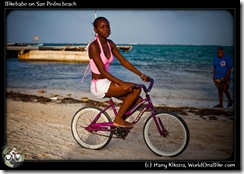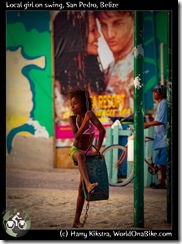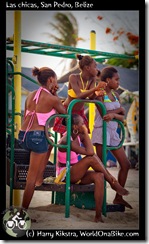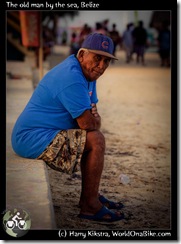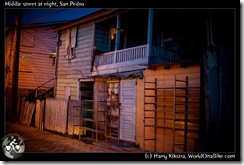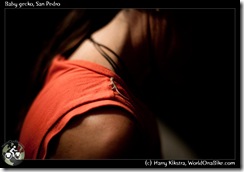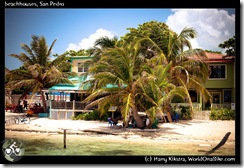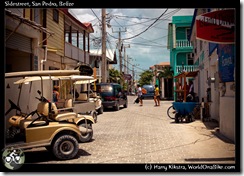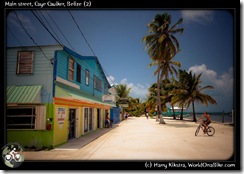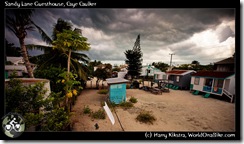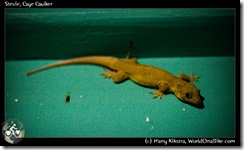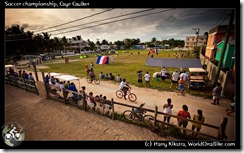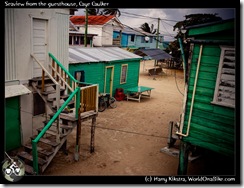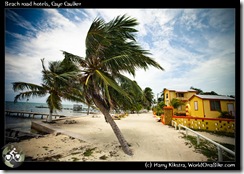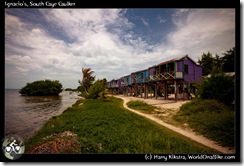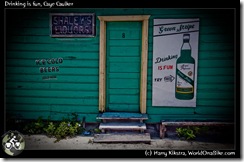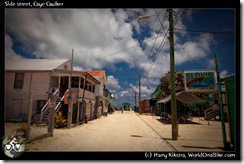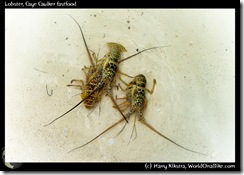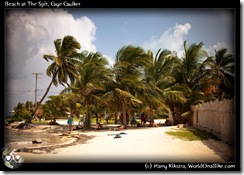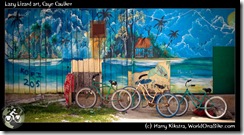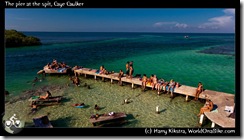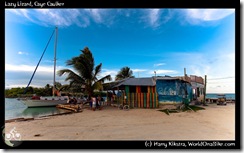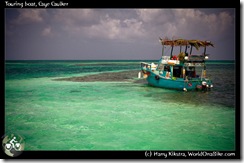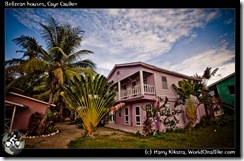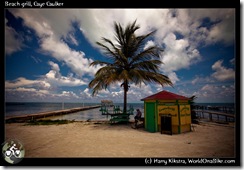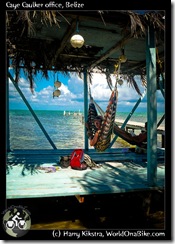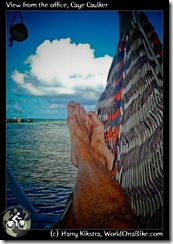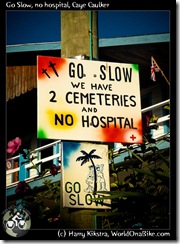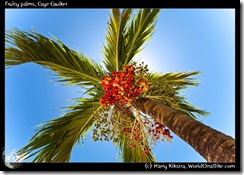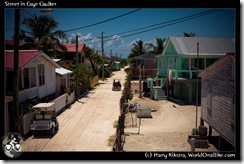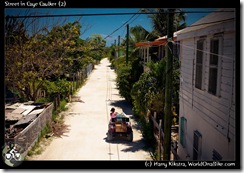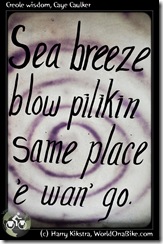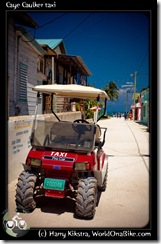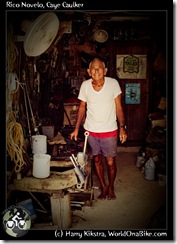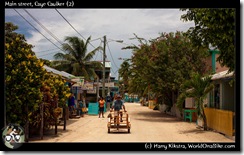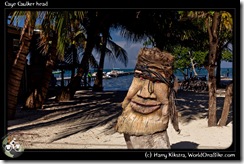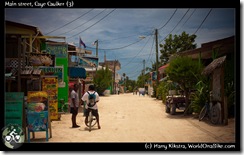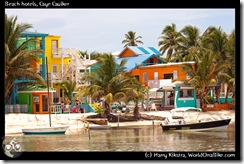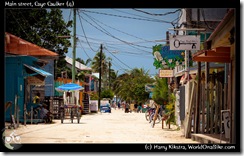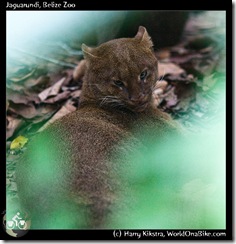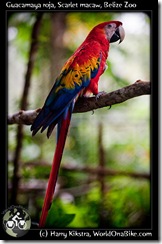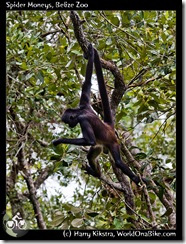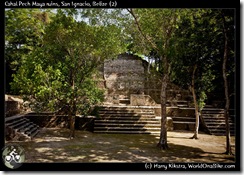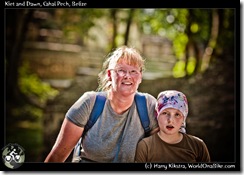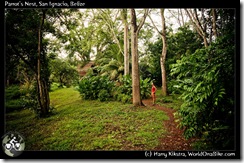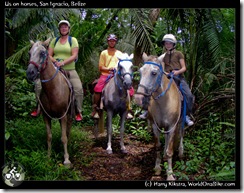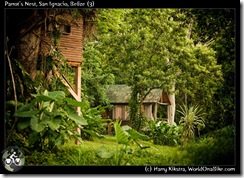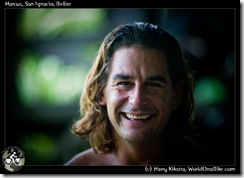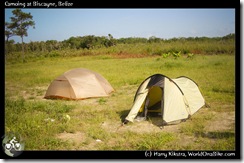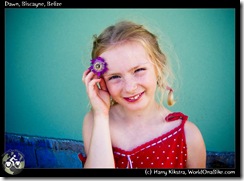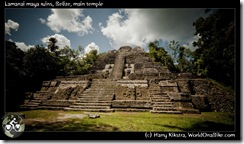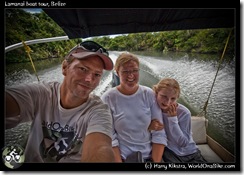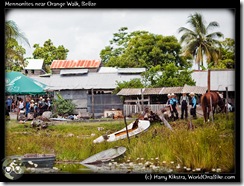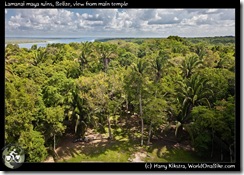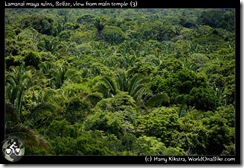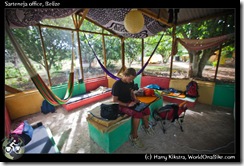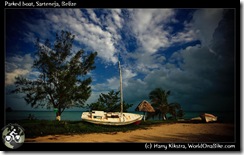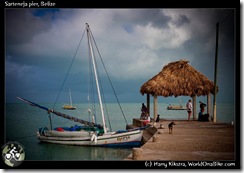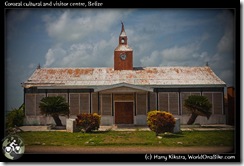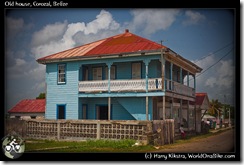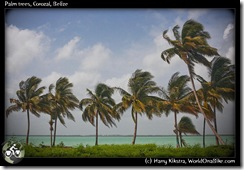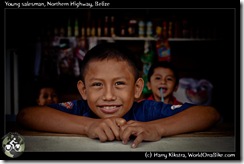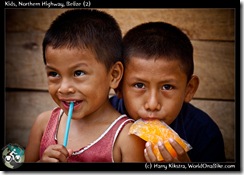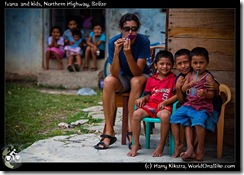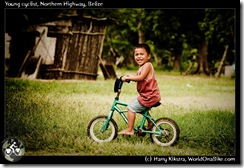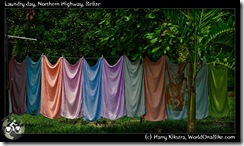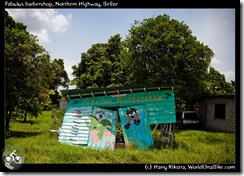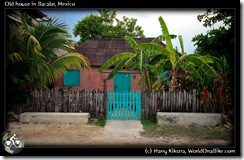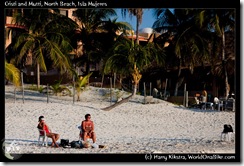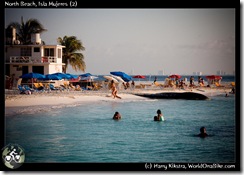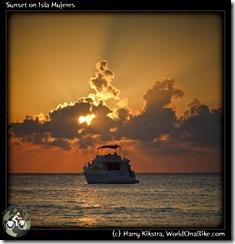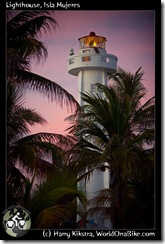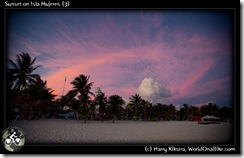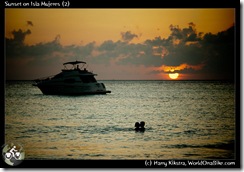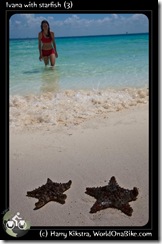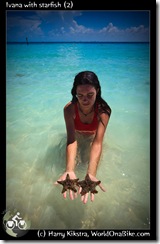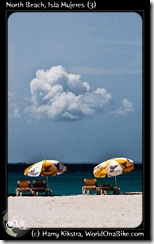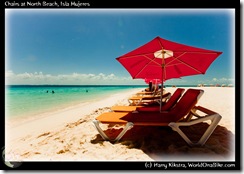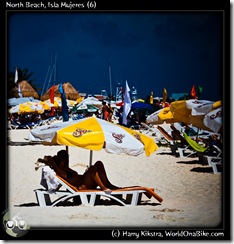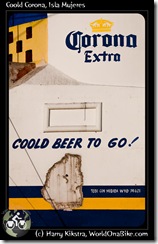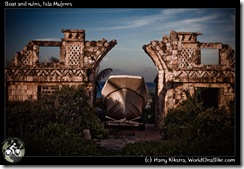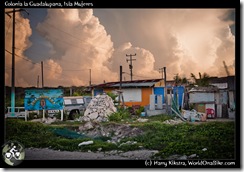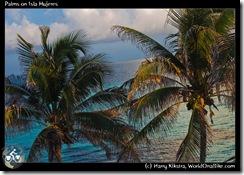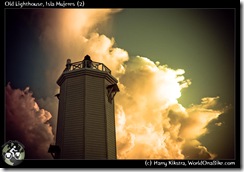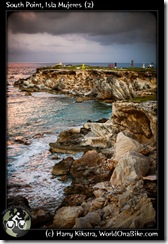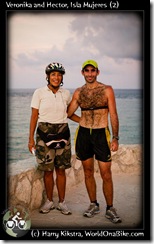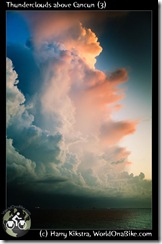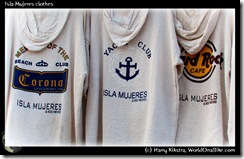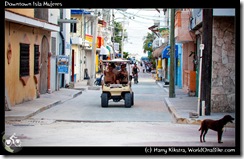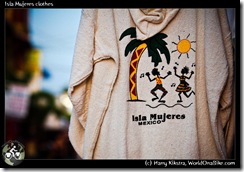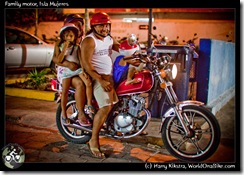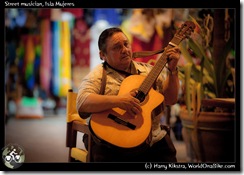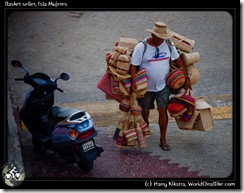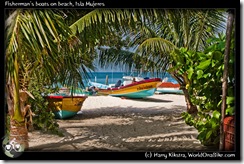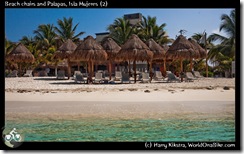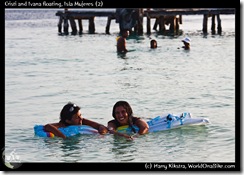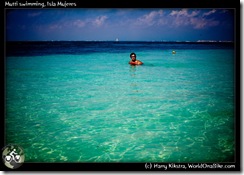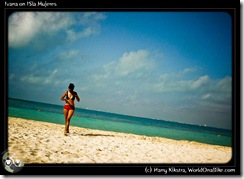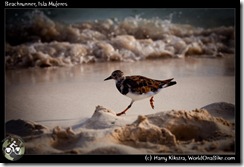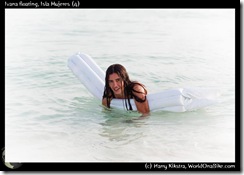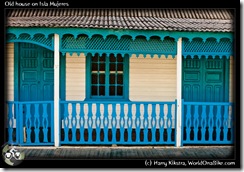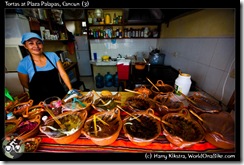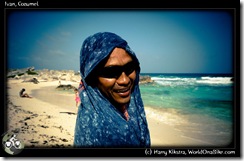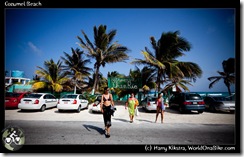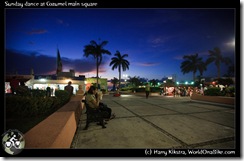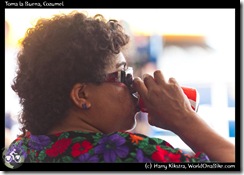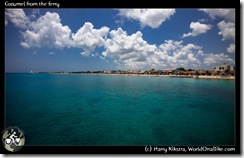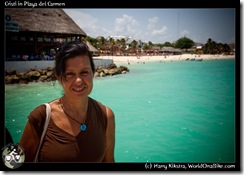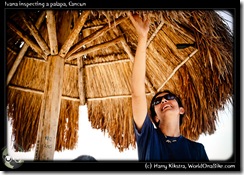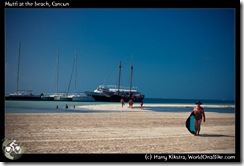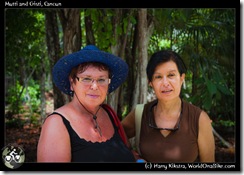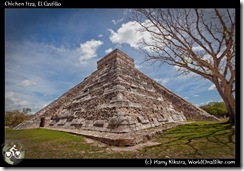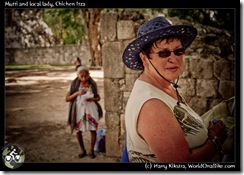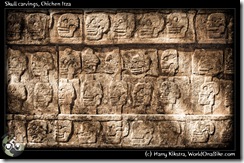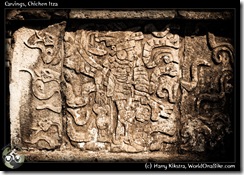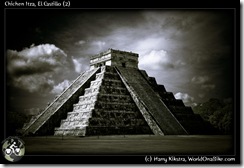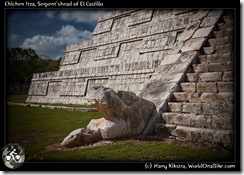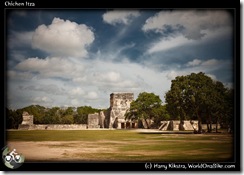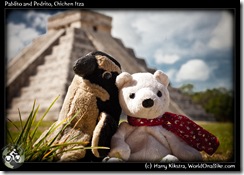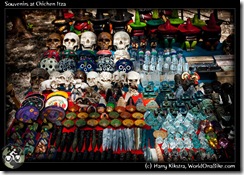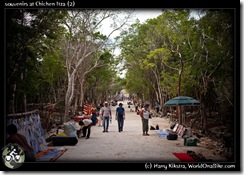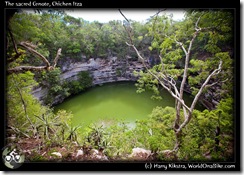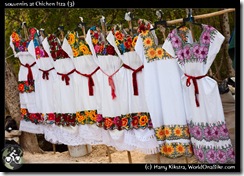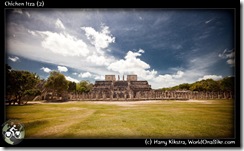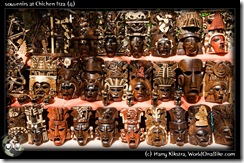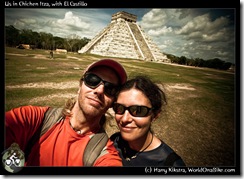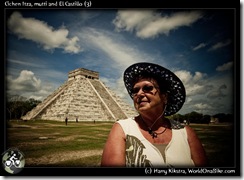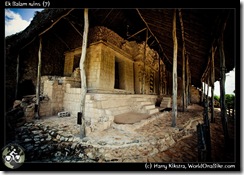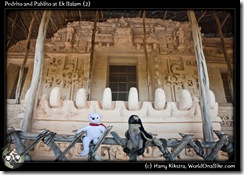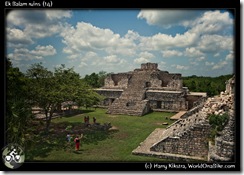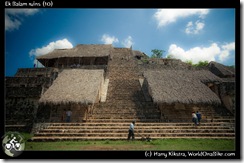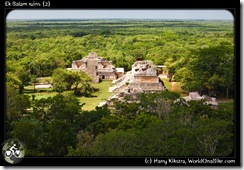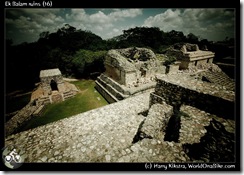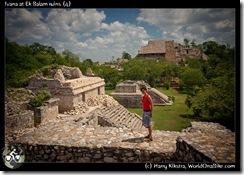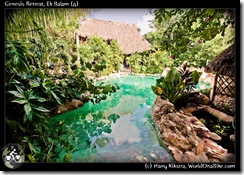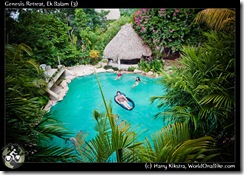Jump for joy: a review of 2010 and looking ahead to 2011
January 1, 2011 by Harry,
Filed under Trip reports, Photography, South America, Bolivia, General
With Ivanas jump for joy on the Salar de Uyuni in Bolivia, I want to wish everybody who reads this blog a wonderful 2011.
Regular readers and subscriber will have noticed that the blog ‘stopped’ in Belize and the photos in Panama. The updated South America Map shows what/where we have cycled and travelled past year, even though we have written no updates about them yet.
In this post, which will also be published on my photoblog ExposedPlanet, I will give a small update about what we have been doing past year and the plans for the next.
—————-
Though 2009 seemed destined to be the most powerful year in my personal history (even beating 2008!), the past year 2010 has yet again been even more crazy, interesting, tough, happy, sad, wonderful, strange and beautful. (“Will this never stop!”)
Looking back I realized that I have been quite active in many ways trying to avoid being a Zombie. It might be a good idea for you and me to reflect on what you have achieved past year in order to inspire for the upcoming year! Let’s stick to the easy to recall statistics on travel & photography, as that is what I do most 🙂
– I have not been posting much on the ExposedPlanet photoblog, but as you might have noticed lately, I am getting back up to speed… Only a few dozen pictures and all in the past months only, but I think the quality has improved a lot, which is more important than quantity
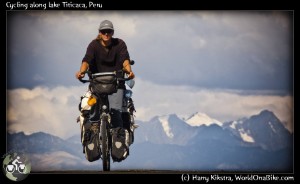
Cycling along lake Titicaca, Peru, by Harry Kikstra, on WorldOnaBike.com, from Alaska to Ushuaia on a bicycle
– We spent all the year in South America. It has been many years ago that I did not visit more than one continent in a year, but South America has proved itself much more diverse than I ever imagined.
– I shot over 7000 pictures on my Canon Eos 5D mark II and several on a new Lumix compact camera as well. Actually I probably shot much more, but these are the ones surviving the first round of critical ‘check-delete’ actions 🙂 I also shot video but still need to learn more about that.
– We cycled almost more than 9700km (6000 miles) through 10 different countries including more than 55km vertical. That is more than 6 times the height of Mt Everest! We cycled from sea-level up to more than 4600m (15,000ft) and even spent 5 weeks non-stop above 3600m (12,000ft).
– One old dream came true: I travelled up the length of the Amazon and Napo rivers across the continent by way of 9 different boats, all the way from Macapa (near the Atlantic coast in Brazil) to Coca, only a few hours away by bus from Quito, Ecuador.
– The inhabitants of these countries I visited spoke in 5 different languages to me (Spanish, Portuguese, English, Dutch & French) as well as many older tongues like Quecha & Aymara and offered many different and wonderful foods
– I climbed and summited 5 mountains of over 5000m (16,400ft) and 3 mountains of over 6000m (19,700ft) including the highest Andean mountains in Colombia, Venezuela, Ecuador & Bolivia and a wonderful 6300+m peak in Peru.
Due to the easy access most of these climbs were only 2-4 (very long) days affairs, but wonderful nevertheless. The views from the thin air never fail to fill me with happiness.
– I minimized consuming, have become even more minimalist than I already was and am very happy about that. The great thing about travelling by bicycle is that you simply cannot take more than you need! I also did not eat any meat (just fish) and am healthier, lighter, fitter and younger than ever, even if I turned 40 past summer.
– I went on one (1) airplane flight (to the Galapagos Islands, another dream come true) as unfortunately there is no other way to get there anymore. That is one more flight than I took last year…
– We saw countless animals in the wildincluding vicunas, guanacos, llamas, capybara, alpaca, alligators, monkeys, armadillo, tuco tuco, snakes, vizcacha, marine Iguanas and turtles and their land-based cousins and hundreds of different types of sea- and land-based birds including nandu, flamingo, condor, red ibis, penguin, macaw, blue footed boobies and many, many more.
We witnessed giant leatherback turtles laying their eggs and even swam face to face with sea-turtles, dolphins, sea lions and strange and colourful fish, as close to nature as you can get.
– I started a new and very exciting company with a good friend (and built a website for it as well: http://Flexiwaysolar.com. The project is about to take off really soon now and should change the lives of thousands of people in a very positive way, while saving the planet a bit.
– I redesigned the ExposedPlanet photoblog, and switched it over to the WordPress platform for more flexibility Also I added a new blog, with photography tips, see http://blog.exposedplanet.com, the first 5 or so posts are already up.
– I started licensing some photos through Getty and already made several sales. I have sold some more through my ImageKind shop and directly to diverse clients for usage all around the world in magazines & books (Contact me if you are interested in my images).
– I still run my business 7summits.com full-time and had one of the best years ever, with an unbeatable 100% summit rate for all my Kilimanjaro clients, climbing on many dozens of different personalized expeditions. We employ local guides only which makes the trips not only 50-70% less expensive, but also ensures that even the prices are very low, most of the paid fees end up in Tanzania, Argentina, Tibet/Nepal etc. One thing that makes me proud as well are the wonderful stories the clients sometimes send back after the climb: check some of these out on the 7summits.com clients feedback page.
– BikeTravellers.com, the community for adventure cyclists has been re-built and redesigned as well, with some added functionality.
– I started preparing for a major personal event upcoming in 2011, something to do with tying knots, but not on mountains 🙂
So I am quite satisfied with the things I have done considering I also have to sleep sometimes even though I would like to change that as it is often a waste of time !
But what was much more important is that I met great people from many different countries, seeing culture and nature up close in away that can only be done while travelling (and really only by travelling by bicyle).
What did not happen?
What I regret a lot is not having time to update the WorldOnaBike.com blog. If you look there, it seems we are still in Belize (though the Map is updated to our current position). I would have liked to share more adventures, great places and nice people.
Unlike what many people feared and told/warned us that would definitely happen, we have not been robbed, assaulted, murdered or hit by cars, even when travelling ‘unprotected’ through ‘scary places’ like Colombia, Venezuela, Brazil, The Guyanas, the Amazon & Brasil, Peru, Ecuador, Bolivia & Argentina.
We did not ‘Zombie out’. Unlike many others we have not stayed at home in front of a TV because of fear of the unknown, in need of consuming and passive feeding of fear and commerce by the TV. Instead we have actively approached the unknown and have been enriched by our experiences beyond description.
We made great new friends. Some we travelled with like the illustrous ‘La Familia‘, ‘ The A-team‘, ‘Tim sem Fronteiras‘ and the ‘Abnormal Austrians‘ as well as many other wonderful people that changed from strangers to friends slowly or instantly and that offered us hospitality along the way, sometimes for a few hours, sometimes for weeks on end, muchas gracias!
And maybe even better is that all of this together could be done on a monthly budget less than what most people spend on car insurance or fuel alone… It’s about making choices in your life, nothing more, nothing less.
So what is there left to do in 2011?
Actually a lot. Most of the current things I am doing will continue with full force coming year, especially 7summits.com, BikeTravellers.com & the Flexiway Solar-powered LED lights projects.
Some of the things I had wanted to do past year had to be moved to 2011 and new ideas and projects will hopefully happen in 2011, including:
Switching 7summits.com to WordPress, climbing the highest mountain in Peru (the only one I wanted to but did not climb past year) starting my new blog on Minimalist Living, moving to Patagonia, getting married, writing new books, updating all the blogs, shooting at least 10,000 more photos, editing at least 5000 of them, choosing and buying parts and ordering and building my first self-built PC in order to be able to do so in time.
We also still have about 8000-10000km (5-600 miles) to go on our Pan-American mainland bicycle expedition, visiting the missing parts of Paraguay, North-East Argentina, Uruguay and Patagonia (Southern Chile/Argentina), which I am all really, really looking forward to. I will keep on promoting cycling and travelling by bicycle by offering free weblogs and info/help on BikeTravellers.com.
And of course I will run my climbing and photography businesses with full force in order to pay for all of this but also to let more people enjoy the joy of climbing mountains and experiencing the cultures surrounding the mountains
I will update ExposedPlanet with new images and stories, in order to share the beauty of nature and culture and to counter the fear and xenophobia that is still going strong in the world…
More than enough about me, let’s focus on the world around us again!
I started this post as I just wanted to share one of 2010’s great moments with you: Ivana jumping for joy on the beautiful Salar de Uyuni, Bolivia and will close with one of myself taken there as well, with a simple message for all of you:
May you jump for joy many times in the year to come.
Intermezzo: Interview with Ivana & Harry for Examiner
Nancy Vogel Sathre is not only cycling from Alaska – Ushuaia as well, she is doing it with her husband and two kids, homeschooling them all the way! They can be followed on http://familyonbikes.org
She also writes for Examiner.com and recently asked us for an interview. I might as well post it here, not just to help out other biketravellers, but also so you know some things we are doing when we are not writing updates or cycling 🙂
(The original interview was published here)
———– start of interview ———
Ø Would you please explain a tad bit about where you’ve been and where you’re going.
We are Ivana (33, Argentina) and Harry (39, Netherlands) and we are currently cycling the Americas from Prudhoe Bay, Alaska to Ushuaia, Argentina, visiting all the countries on the mainland on our way.
Ø How long have you been on the road?
We started in July 2008, so now about 15 months. We think we are almost halfway. But both of us have been travelling the previous years as well, on other cycling and climbing trips.
Ø Why the bike? What is it about the bike that made you choose it over buses and trains and planes?
Cycling is the only way to go. Not just for obvious ecological reasons, but it the only way of transportation that:
- Keeps you fit and healthy, physically as well as mentally
- Is fast enough to travel to a new place every day
- Is slow enough that you can enjoy the journey and scenery while travelling
- Is flexible and small enough that you can stop and park everywhere to take a picture, talk with a local or eat a berry on the roadside (and can be taken up to the safety of a 4th floor of a house if needed).
- Can carry more luggage than us! We can take extra stuff that would never fit in a backpack alone.
- Is fun
– Ivana: Buses make me sick and most of cars afraid and I basically I only like to travell by bike
Ø What prompted such an extended journey? Had you done a lot of touring before?
Ivana had done a long previous trip: Around New Zealand, then from Malaysia to India, hopping over to Turkey for a tour there. I (Harry) had mostly been climbing the past decade and had only done a few small trips (around the English channel, around the Irish Sea, from Amsterdam – Zermatt on a Tandem), all about 2-3 weeks. Of course in the Netherlands you basically bike before you walk, so I am used to cycling, it’s my way of life. I never owned a car in my life as it is not needed with the great cycling and public transport infrastructure we have.
We met in Tibet when I was climbing Everest and she was on her long cycing- trip. We met again after my climb, in India and I basically made her cut her bike trip short as she had planned to cycle through Europe as well.
We did do a short tour from Rome to Germany, but I promised Ivana that I would make it up with a long trip together. She wanted to see more of her home continent (South America), I wanted to show her the wonderful nature and good people of Alaska, Canada, The USA and my friends in Guatemala. So we decided to just go all the way
Ø I know there are plenty of wonderful days when the sun is shining and you’ve got the wind at your back. But there are also days when it’s raining or you face a headwind or you’re climbing a hill that just won’t end. How do you get through those days? What keeps you going?
Frankly, mostly there is not much choice. There have been few days of tailwind so far, but also few days of really horrible weather, though we had some decent hills. You just have to face the facts and be pragmatic: stopping will not do much good on the middle of the hill and as long as the luggage inside the Ortlieb bags is dry, it does not matter so much if you get wet as long as you are warm enough.
People who are just complaining about life or are afraid or getting out of their comfort zone or are afraid of other cultures will have trouble adapting to this. But once they do, they are lost forever, as once bitten by the BikeTravelling bug there is no turning back from a more open and receptive lifestyle!
Ø As hard as it is to pick out one or two highlights – would you, could you? Tell us about a couple of those incredibly wow-ing, drop-your-jaw experiences you’ve had.
The overall experience is much stronger than separate positive incidences, even if we had many. It is interesting to see that many times an experience only turned out very special in hindsight. Often we struggled up a hill or through a forest or desert while cursing the environment and life we were in while the sections turned out to be very special looking back.
The Dalton Highway in Northern Alaska is very tough, but also wonderful for its nature and remoteness. We really enjoyed the Redwoods in Northern California, getting invited on an Indian Potlatch and playing with a fox on the Cassiar Highway in Canada, seeing the coastline in the USA, enjoying the Baja California desert and the Mexican Highlands. Personally I also enjoyed off-bike activities such camping in Yosemite in winter, climbing Pico de Orizaba in Mexico, snorkelling with stingrays in Belize and seeing the independence parades in Guatemala.
But most of all, it is the people we met, all the way. Our many CouchSurfing and WarmShowers hosts and the dozens of strangers that have become good friends, from all types and backgrounds. The tens of thousands that have waived, smiles or even applauded from the side of the road. There is a good in the heart of all people that you can only discover by going out and finding them. See the ‘1000 Americans’ section on our blog for some photographic impressions (http://harry.biketravellers.com/1000-americans/) .
Ø What about those days you wish you could forget (but you know you never will)? Those days when everything goes wrong and then even more goes wrong? Tell us about a couple of those.
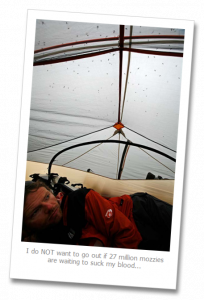 We spent my B-day in the rain on a muddy and steep section of the Dalton dirt road (Alaska) called “The Rollercoaster”. ‘Nuff said. We had to buy a big bag of ice and stuff them in our waterbags and put them on our body to cool down enough to sleep in a hot Mexican night. We got blown off the road in Baja California with no water in sight and Ivana had some scary close encounters with wheels of a truck. And most of all, I hate Mosquitoes. I do not discriminate, I hate mosquitoes in Alaska, in Canada, In the USA, in Mexico and in Belize. There are few things more annoying than climbing uphill with 4 miles/hour on a muddy road in Alaska while overheating and being eaten through 2 layers of clothes by Mozzies at the same time.
We spent my B-day in the rain on a muddy and steep section of the Dalton dirt road (Alaska) called “The Rollercoaster”. ‘Nuff said. We had to buy a big bag of ice and stuff them in our waterbags and put them on our body to cool down enough to sleep in a hot Mexican night. We got blown off the road in Baja California with no water in sight and Ivana had some scary close encounters with wheels of a truck. And most of all, I hate Mosquitoes. I do not discriminate, I hate mosquitoes in Alaska, in Canada, In the USA, in Mexico and in Belize. There are few things more annoying than climbing uphill with 4 miles/hour on a muddy road in Alaska while overheating and being eaten through 2 layers of clothes by Mozzies at the same time.
As a climber I have learnt to focus simultaneously focus on the present for safety, and ahead for relief as you know the suffering will stop at some time.
Fortunately our Santos bikes have not had a single problem, other biketravellers have had frustrating experiences with their bikes which can really ruin your trip.
Ø You’ve toured through many countries and I know they each are unique and have their advantages and disadvantages. But, if you were to talk with someone relatively new to cycle touring, where would you recommend they go? Why?
It depends if you are an experienced cyclist and traveller to start with. For beginning cyclists it is best to start in ‘easy’ countries like The Netherlands and Denmark, where cycling is part of the culture (meaning that drivers respect you) and separate bike lines (and right of way!) make cycling easy, fun, flat (!) and safe, while there is a lot of culture and history and helpful people. And there is a bikeshop in every town and a pump in every house.
If you are already physically active you can head to some more hilly parts, basically the rest of the world J. Ivana loved Eastern Asia for the safety and people, I loved the remoteness of Alaska and Canada. You can also tour a few weeks in Europe and see a new country and culture every few days!
There are a lot of great routes in the US, see the Adventure Cyclists organization.
But cycling is only a small part of the travelling, so also try to get abroad and immerse yourself in new cultures, even if going just over the border into Mexico, which is a hidden gem.
Ø Any special tips or advice to wannabe tourers?
Yes
– Even though Ivana cycled over 8000 miles on a $400 bike without much problems, I would say: get good gear. Get good waterproof bags, get a good bike and good tires. You will enjoy it so much more if you do not need to stop every two days to fix a rack or a flat tire, leaving more time for nature and culture.
– Then again, do not get fooled by the expenses: biketravelling is usually cheaper than sitting at home doing nothing. And yes, that includes the accommodation, food, gear and all. You can travel anywhere in the world (maybe not Japan) for $10/day. We travelled in Italy, US, Canada for less than that.
– All trips and people are different. Don’t follow other people’s trips: nobody is forcing you to go 100 miles per day, every day because another cyclist did so; you can also do 25 miles, 2 days a week and still be in a different place every week. If you want to carry extra clothes or luxury items: just do it, not everybody enjoys travelling with only two, half-filled panniers, especially when on a longer trip. If you have the funds, do not want to ‘rough’ it and want to sleep in hotels and eat in restaurants? Go for it, you will help out the local economy.
– Take your time anyway, bike-travelling is not rushing. That is bike-racing which is a fun sport, but a different experience. Get off the bike and meet the people, eat the food and see the sights.
– Do not have the time for a long trip? Take short trip in your area or head out to a train station take a train and cycle back. There are no ‘laws’ for minimum distance (nor for maximum!).
– There is also no age limit as many young kids as well as BikeTravellers in their sixties and seventies have proven. Biketravelling and cycling is for all ages and backgrounds.
– Don’t plan everything ahead as the best things happen unexpectedly anyway.
Don’t get scared inside your house by false financial promises and xenophobic threats of the media: there is a whole world out there, waiting to be discovered and shared. You might as well get fit and healthy while doing it!
Finally, as Amelia Earhart said: “the only way to do it, is to do it.”
Thanks,
Harry & Ivana
Our websites:
– Our current trip blogs with stories and loads of photos: http://WorldOnaBike.com (Harry, English) and http://ElMundoenBici.com (Ivana, Spanish).
– More tips and trips and info for and from other biketravellers can be found on http://BikeTravellers.com (where all cyclists can open a free blog) & http://BiciPedia.com
– Photos from this and past travels on and up 7 continents can be found on http://ExposedPlanet.com
– Expeditions to the ‘7 summits’, the highest peaks on every continent: http://7summits.com
Day 393-401, 8-16 Aug 09: The Islas Bonitas of Belize: chillin on San Pedro & Cay Caulker
November 2, 2009 by Harry,
Filed under Trip reports, Central America, Belize
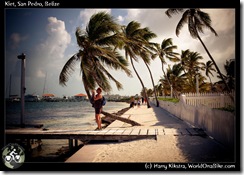
"Tropical the island Breeze, all of nature wild and free, this is where I long to be, la isla Bonita…" 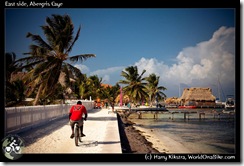 Madonna already sang it over 20 years ago: ‘I used to dream of San Pedro…’. San Pedro is the town on Ambergris Caye, better known as La Isla Bonita from Madonna’s hit-single.
Madonna already sang it over 20 years ago: ‘I used to dream of San Pedro…’. San Pedro is the town on Ambergris Caye, better known as La Isla Bonita from Madonna’s hit-single.
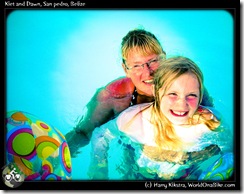 But that was in the 80-s when San Pedro probably still was the paradise she sang about. Since then it has been invaded by US tourists, many of which have bought a piece of land and/or built a house. The palms are still there and though there are no real beaches, the water is clear and the fish abundant in the corals reef just off the coast.
But that was in the 80-s when San Pedro probably still was the paradise she sang about. Since then it has been invaded by US tourists, many of which have bought a piece of land and/or built a house. The palms are still there and though there are no real beaches, the water is clear and the fish abundant in the corals reef just off the coast.
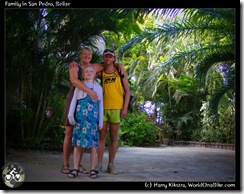 All of this new money has made the prices too high for the locals and at the same time has attracted a lot of shady people as we had already met in Belize City, who offer to ‘help’ you at every street corner.
All of this new money has made the prices too high for the locals and at the same time has attracted a lot of shady people as we had already met in Belize City, who offer to ‘help’ you at every street corner.
Many of these call themselves ‘Rastafari’, but as they do everything that a true Rastafari would not (eat anything that basically was alive and walking or swimming at some point for example), it seems more an excuse for being lazy, which is just on the other side of the thin line separating it from ‘relaxed’.
They also supply al possible drugs possible, which in return has attracted a less joyful crowd of young US teens visiting the island.
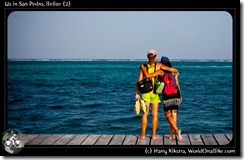 Meanwhile you cannot cross the once empty streets without getting run over by a golf-cart, the most popular way around, both for owners as well as visitors.
Meanwhile you cannot cross the once empty streets without getting run over by a golf-cart, the most popular way around, both for owners as well as visitors.
It is difficult to find a decent place for a decent price, but Pedro’s Inn offered both including a swimming pool which of course is the best place to be during some of the short but torrential rains! Still, a tiny 2 person-room without bathroom costs B$ 20 (USD10) and eating out was expensive as well, so our budget went through the roof…
Here are some impressions:
Go Slow on Caye Caulker: this is where we want to be…
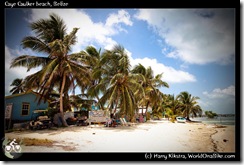 We quickly had enough of the busy San Pedro, and hopped on another boat which dropped us off on the next Island: Cay Caulker. It is much smaller, only a few km long and between 100m & 400m wide. At many places on the island you can stand in the middle and see the sea on both sides 🙂
We quickly had enough of the busy San Pedro, and hopped on another boat which dropped us off on the next Island: Cay Caulker. It is much smaller, only a few km long and between 100m & 400m wide. At many places on the island you can stand in the middle and see the sea on both sides 🙂
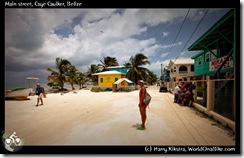 What’s more, the only pavement on the entire island is the small airstrip, the few other roads are all unpaved and sandy.
What’s more, the only pavement on the entire island is the small airstrip, the few other roads are all unpaved and sandy.
Everybody is either walking or cycling and the Island’s motto is “Go Slow”.
This is truly the paradise that Madonna was singing about, likely resembling San Pedro from the 80-s.
Sandy Lane
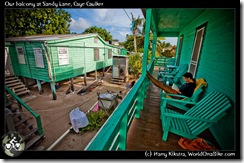 We found a cheap place at the Sandy Lane’s guesthouse, which is unique in that it is probably the only place on the island without a sea view 🙂
We found a cheap place at the Sandy Lane’s guesthouse, which is unique in that it is probably the only place on the island without a sea view 🙂
But for B$25 per room (USD 12,50 for 4 persons together, not counting the in-house gecko which served as a ecological mosquito–trap), we were not complaining.
Besides, we had a front-row seat to the football matches and the sea was less than 100m away on both sides…
Here are some more pix of our ‘area’ and of some other, more expensive hotels on Cay Caulker:
Chilling at The Spit
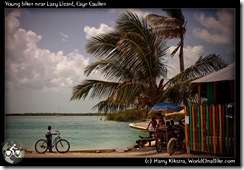 There is a small channel, separating the inhabited Southern Part from the uninhabited Northern part, called ‘The Spit” and there is the only real beach. Accompanied by the beats of the nearby Lazy Lizard pub you can snorkel or relax.
There is a small channel, separating the inhabited Southern Part from the uninhabited Northern part, called ‘The Spit” and there is the only real beach. Accompanied by the beats of the nearby Lazy Lizard pub you can snorkel or relax.
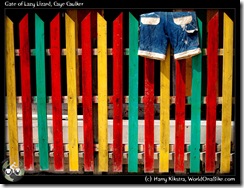 Then it is a maximum of 10 minutes walk back to your hostel, while on the way you can order some ‘fry lobsta’.
Then it is a maximum of 10 minutes walk back to your hostel, while on the way you can order some ‘fry lobsta’.
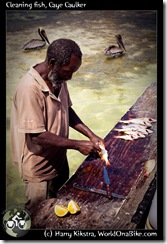 We felt much more at home on Caye Caulker, without all the hustle and bustle and nightclubs of San Pedro.
We felt much more at home on Caye Caulker, without all the hustle and bustle and nightclubs of San Pedro.
The people living here seemed more friendly and truly relaxed, not the pushy fake ‘relax, man, we just want your money’-attitude from San Pedro.
.
.
.
Here are some more pix of The Spit:
Playing with Stingrays
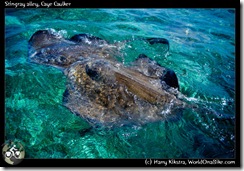 We wanted to go on at least one snorkelling tour and took the popular one that would take us to two of the reefs and to the Stingray alley.
We wanted to go on at least one snorkelling tour and took the popular one that would take us to two of the reefs and to the Stingray alley.
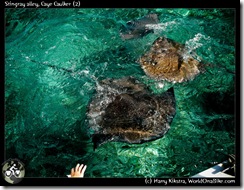 The tour was great and we all enjoyed snorkelling through clouds of colourful fish and corals.
The tour was great and we all enjoyed snorkelling through clouds of colourful fish and corals.
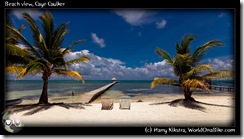 The special part was when we stopped at a shallow part, where stingrays up to several feet in diameter came up to us. You could touch them and even hold them which was wonderful.
The special part was when we stopped at a shallow part, where stingrays up to several feet in diameter came up to us. You could touch them and even hold them which was wonderful.
Then of course: back to the hammock office and deciding which catch of the day we would eat…
Goodbye to my sister and niece, together alone again
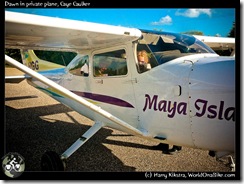 After spending nearly two weeks together, it was time to say goodbye.
After spending nearly two weeks together, it was time to say goodbye.
To avoid the hassle and unfriendly crowds in Belize City, we decided it would be better if Margriet & Dawn used one of the small planes to get to the International airport. Besides, it would give them one more evening and night with us!
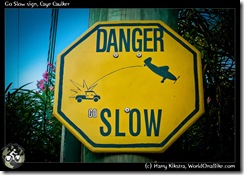 We were surprised to see that as they were the only 2 persons flying, only a small Cessna showed up: a private plane!
We were surprised to see that as they were the only 2 persons flying, only a small Cessna showed up: a private plane!
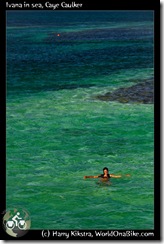 We said our goodbyes, not sure when and where we would see each other again…
We said our goodbyes, not sure when and where we would see each other again…
We stayed another few days on the Island as we had to await for Jorge to come back from vacation, as our bikes were still stored at his place in Belize City.
But that was no hard thing to do, it was nice to have some extra time on the ‘Go Slow’ island, catching up with some work, swimming more and preparing mentally for the next part on the bike: down South through Belize towards Guatemala!
A final look at Caye Caulker: as always:
click to enlarge automagically, see the photos section for more pix of Belize and the islands!
Day 384-393, 30jul-8 Aug 09: Animals, Jungle, Ruins, Boats & Buses: interior & Northern Belize
October 30, 2009 by Harry,
Filed under Trip reports, Central America, Belize
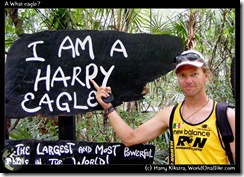 It was great to see my only sister Margriet and her daughter/my niece Dawn again, as it had been over a year since we had said goodbye in The Netherlands. She always wanted to go to Belize and as she was tied to my niece’s vacation schedule, we were lucky that we could plan a few weeks together.
It was great to see my only sister Margriet and her daughter/my niece Dawn again, as it had been over a year since we had said goodbye in The Netherlands. She always wanted to go to Belize and as she was tied to my niece’s vacation schedule, we were lucky that we could plan a few weeks together.
 Her entry into Belize was not so easy as the airport personnel was so rude and aggressive that she was crying when she came out of the airport building. On top of that their luggage was delayed, so we had to spend an extra night in Jorge’s place.
Her entry into Belize was not so easy as the airport personnel was so rude and aggressive that she was crying when she came out of the airport building. On top of that their luggage was delayed, so we had to spend an extra night in Jorge’s place.
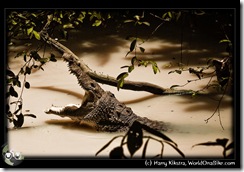 We spent the extra day in Belize City by visiting the famous Belize zoo. a small animal park, started as a shelter after animals were left after a film project.
We spent the extra day in Belize City by visiting the famous Belize zoo. a small animal park, started as a shelter after animals were left after a film project.
Now they shelter more and more animals and though I generally dislike captive animals on display, this was not too bad. 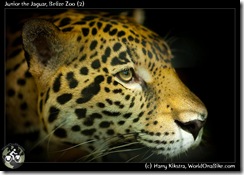
S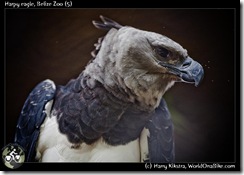 ome of the animals had very little space, others had more, but all were surrounded by a thick jungle, so you could feel like an explorer, meeting al 5 cats of Belize, the largest eagle in the world and much more..
ome of the animals had very little space, others had more, but all were surrounded by a thick jungle, so you could feel like an explorer, meeting al 5 cats of Belize, the largest eagle in the world and much more..
To the West: Ruins, Horses and Parrots’ Nests in San Ignacio
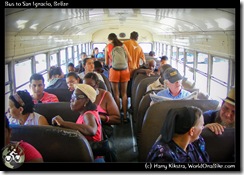 After the luggage finally arrived, we said our thanks and goodbyes to Jorge, who had patiently helped us out, and boarded a bus West. All ‘public’ buses are privately owned and they are all refurbished USA school buses. This means tights spaces, no luxury and loads of diesel fumes.
After the luggage finally arrived, we said our thanks and goodbyes to Jorge, who had patiently helped us out, and boarded a bus West. All ‘public’ buses are privately owned and they are all refurbished USA school buses. This means tights spaces, no luxury and loads of diesel fumes.
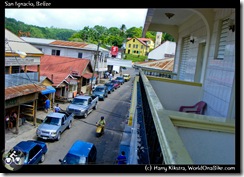 The fun thing is to see the diversity of people inside the buses: the Creoles, the Mennonites, the Mayas, the Guatemalans and the tourists all travel together for a few dollars.
The fun thing is to see the diversity of people inside the buses: the Creoles, the Mennonites, the Mayas, the Guatemalans and the tourists all travel together for a few dollars. 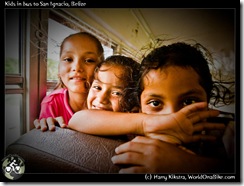 The Western Highway leads past the capital of Belmopan towards the main town of San Ignacio, just 20km from the Guatemalan border.
The Western Highway leads past the capital of Belmopan towards the main town of San Ignacio, just 20km from the Guatemalan border.
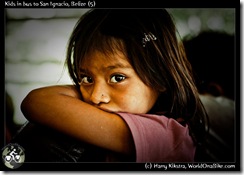 it is a well-known tourist spot, located in the hills and many foreign-owned eco-lodges are located here, in the midst of jungle, ruins and caves, while the famous Maya site of Tikal, Guatemala is only a few hours away.
it is a well-known tourist spot, located in the hills and many foreign-owned eco-lodges are located here, in the midst of jungle, ruins and caves, while the famous Maya site of Tikal, Guatemala is only a few hours away.
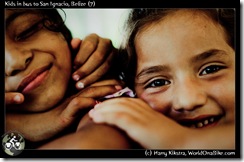 I had seen it 9 years ago when I first visited Guatemala and would have loved to see how it had changed. But due to the expensive (single entry!) visa for Ivana and the exit taxes we would all have to pay, we decided to skip Tikal in favour of some local sights.
I had seen it 9 years ago when I first visited Guatemala and would have loved to see how it had changed. But due to the expensive (single entry!) visa for Ivana and the exit taxes we would all have to pay, we decided to skip Tikal in favour of some local sights.
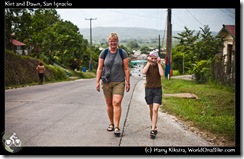 Just outside of town was a small Maya site named Cahal Pech, which was not much more than a few big buildings on top of a jungle covered hill, but that was exactly the charm.
Just outside of town was a small Maya site named Cahal Pech, which was not much more than a few big buildings on top of a jungle covered hill, but that was exactly the charm.
No other visitors had hiked up the steep hill and we could explore the ruins alone and Margriet & Dawn enjoyed it tremendously.
CouchSurfing and horse riding around the Parrot’s Nest
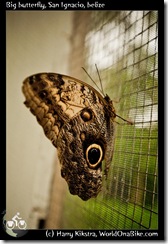
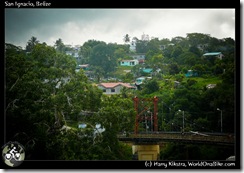 We had gotten in contact with yet another CouchSurfing host, Marcus. Originally from the US, he works as a teacher in a small town and enjoys the eco-lodge he runs with his wife Theo.
We had gotten in contact with yet another CouchSurfing host, Marcus. Originally from the US, he works as a teacher in a small town and enjoys the eco-lodge he runs with his wife Theo.
The Parrot’s Nest is a great place to relax, float on the river, watch the giant lizards and butterflies and to awake at the sound of toucans chatting away.
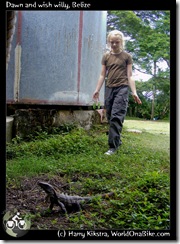 Dawn really wanted to ride a horse and so Margriet & I joined her on a nice ride of several hours.
Dawn really wanted to ride a horse and so Margriet & I joined her on a nice ride of several hours.
We rode through thick jungle, up steep hills, past hidden ruins and friendly people.
Back to the North: Lamanai Ruins via Croc-land and Biscayne
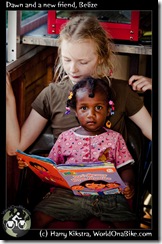 We had to get back to Belize City before we could take another us up the Northern Highway. Ivana & I had seen a place named Croc land, which seemed like a fun place: some crocodiles and the largest swimming pool of Belize ((without crocs :)).
We had to get back to Belize City before we could take another us up the Northern Highway. Ivana & I had seen a place named Croc land, which seemed like a fun place: some crocodiles and the largest swimming pool of Belize ((without crocs :)).
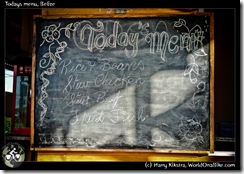 First we camped in another place we had scouted out: a small grocery store that had a camping space and a shower! Dawn spent time playing with the kids and we had our very first ‘Rice & Beans’ in Belize.
First we camped in another place we had scouted out: a small grocery store that had a camping space and a shower! Dawn spent time playing with the kids and we had our very first ‘Rice & Beans’ in Belize.
The swimming pool in Croc Land was indeed very nice, and we enjoyed it, but upon further inspection it turned out that Croc-Land not only housed a few dozen Crocodiles in horrible circumstances but also other animals including a mountain lion and even a jaguar, hidden away in a far corner; going mad in a concrete cage without shade. This place should be shut down immediately…
Back in time on the New River
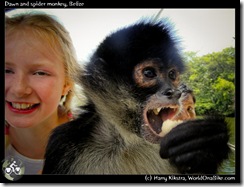 I wanted to show them at least one more bigger Maya site and we decided to go to Lamanai. This old Maya centre is located next to one of the largest rivers in Belize and though it boasts some very impressive grand buildings, the boat tour to get there is just as fun.
I wanted to show them at least one more bigger Maya site and we decided to go to Lamanai. This old Maya centre is located next to one of the largest rivers in Belize and though it boasts some very impressive grand buildings, the boat tour to get there is just as fun.
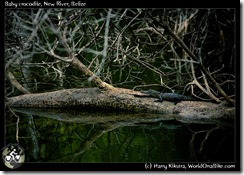 The captain clearly loved his job and pointed out every bird, baby crocs, bats and the Mennonite community along the way.
The captain clearly loved his job and pointed out every bird, baby crocs, bats and the Mennonite community along the way.
He slowly passed some Spider Monkeys, to give them a chance to grab some bananas off the boat and then went at full speed through some of the other curves of the river before showing us around the historical sites. It was hot and the bugs were attacking, but still a great day out.
Orange Walk to Sarteneja.
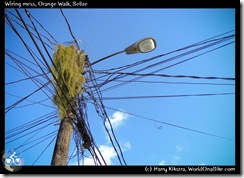 We returned too late to get to our next destination, so we decided to skip Corozal as planned and stayed another night in Orange Walk, enjoying Guatemalan tamales & Salvadorian pupusas off the street.
We returned too late to get to our next destination, so we decided to skip Corozal as planned and stayed another night in Orange Walk, enjoying Guatemalan tamales & Salvadorian pupusas off the street.
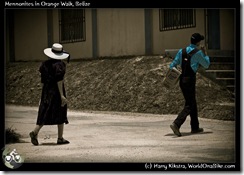 We skipped Corozal in favour of Sarteneja, an even smaller coastal town where two backpackers had opened up a small eco-place called The back-packer’s Paradise.
We skipped Corozal in favour of Sarteneja, an even smaller coastal town where two backpackers had opened up a small eco-place called The back-packer’s Paradise.
We stayed 2 nights while swimming in the warm Corozal bay. ahh, the hard life of the Bike Travellers 🙂
Coming up: Belize with Family, part 2 (final): La Isla Bonita
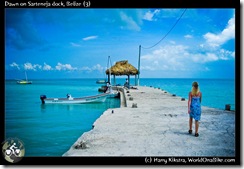 It was time to head out to the pier and grab a boat to visit the best-known places in Belize.
It was time to head out to the pier and grab a boat to visit the best-known places in Belize.
Remember when Madonna sang about the place with the Tropical Breeze, this was where she wanted to be?
Next stop: San Pedro, “La Isla Bonita”…
Day 380-383, 26-29 July: The Northern Highway and shady Belize City, into Belize!
October 28, 2009 by Harry,
Filed under Trip reports, Central America, Belize
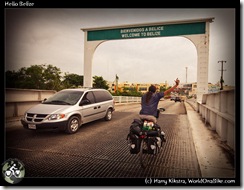 After crossing the bridge that separated Mexico from Belize, we still had to do some formalities. I could just ride my bike into the office and get a free stamp, valid for 4 weeks, but Ivana had to pay.
After crossing the bridge that separated Mexico from Belize, we still had to do some formalities. I could just ride my bike into the office and get a free stamp, valid for 4 weeks, but Ivana had to pay.
Sometimes being an Argentine helps dodging costs: for some unknown reason she does not have to pay for visa for for example turkey & India, whereas I do. But in order to enter Belize, she needed to pay B$100, 100 Belize Dollars, equalling USD $50! It must have something to do with the old ties to the Argentine archenemies, the Brits (Islas Malvinas, anyone?).
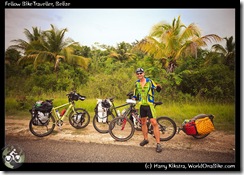 We also had to state where we wanted to exit Belize, which we had not expected. As there are only 3 options and we did not want to exit the way we just came in, we had to choose between the land border close to Tikal, Guatemala and the Southern sea-port of Punta Gorda. We opted for the latter and so the basics of our time and route through Belize were fixed more than we would have liked to: maximum 4 weeks, in through the North, out through the South.
We also had to state where we wanted to exit Belize, which we had not expected. As there are only 3 options and we did not want to exit the way we just came in, we had to choose between the land border close to Tikal, Guatemala and the Southern sea-port of Punta Gorda. We opted for the latter and so the basics of our time and route through Belize were fixed more than we would have liked to: maximum 4 weeks, in through the North, out through the South.
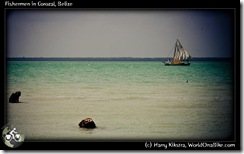 We continued on a flat road through muggy mosquito-filled fields and even met another cyclist headed North, who showed us his bike with mono-wheel trailer. he said it was very strong, but while demonstrating how to get on the bike, it came off, which did not seem too secure to us..
We continued on a flat road through muggy mosquito-filled fields and even met another cyclist headed North, who showed us his bike with mono-wheel trailer. he said it was very strong, but while demonstrating how to get on the bike, it came off, which did not seem too secure to us..
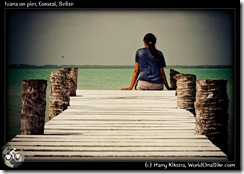 Some miles later, we rolled through neatly trimmed lawns –seems the Brits left another legacy here- topped with old and worn houses into the fisherman’s town of Corozal. We liked the relaxed and friendly place, enjoyed some nice hand-made ice-cream and went to look for a cheap place to stay.
Some miles later, we rolled through neatly trimmed lawns –seems the Brits left another legacy here- topped with old and worn houses into the fisherman’s town of Corozal. We liked the relaxed and friendly place, enjoyed some nice hand-made ice-cream and went to look for a cheap place to stay.
The cheapest rooms were in this non-touristic town where still more than B$25, which was more than our daily budget. We started to believe the scary stories of costly Belize that other travellers had told us.
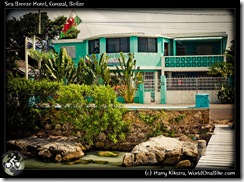 Finally we came upon a nice classic-looking hotel, named the sea-breeze hotel. We asked owner Gwynn if we could camp in his yard but he insisted we camp within the gate and under shelter of his sea-view bar instead. A while later he even offered us to stay for free in the spare room that was normally used by the cook, thanks Gwynn!
Finally we came upon a nice classic-looking hotel, named the sea-breeze hotel. We asked owner Gwynn if we could camp in his yard but he insisted we camp within the gate and under shelter of his sea-view bar instead. A while later he even offered us to stay for free in the spare room that was normally used by the cook, thanks Gwynn!
Later it turned out that it was not only the most economical place in town (B$40 or USD $20 for a room which could fit 3 or even 4 persons), but also most recommended by Lonely Planet and we planned to come back later with my sister.
Some more pix of Corozal:
Day 381: 27th July 2009, Corozal – Carmelita, 60km
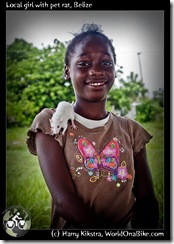 There are only 3 real roads in Belize, aptly named: The Northern Highway, The Western Highway and the southern Highway, all ending/starting in centrally located Belize City. Even so, there was almost no traffic on the Northern Highway that we were on, and we followed the gentle lines of the landscape without much bother of diesel-powered machines.
There are only 3 real roads in Belize, aptly named: The Northern Highway, The Western Highway and the southern Highway, all ending/starting in centrally located Belize City. Even so, there was almost no traffic on the Northern Highway that we were on, and we followed the gentle lines of the landscape without much bother of diesel-powered machines.
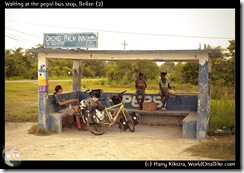 It was becoming a bit of a game to guess what language the people spoke and understood.
It was becoming a bit of a game to guess what language the people spoke and understood.
Though the official language is English, a large part of the population (the Maya) still only speaks Spanish and the ones that do speak English (mostly the dark-skinned Creole and Garifuni population) have their own pidgin variation of it, which would pass no teacher’s test.
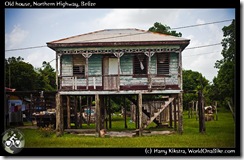 Then there are the Mennonites, who speak their own tongue (with elements of German as well as Dutch) and are important part of the population as they create about 45% of the nation’s food supply; dressed as if they were starring in the video clip of Weird Al’s Amish Paradise or stepping out of a 16th Century Dutch master’s painting.
Then there are the Mennonites, who speak their own tongue (with elements of German as well as Dutch) and are important part of the population as they create about 45% of the nation’s food supply; dressed as if they were starring in the video clip of Weird Al’s Amish Paradise or stepping out of a 16th Century Dutch master’s painting.
We found that bananas were still affordable here (8 for a B$) and discovered a new treat: ideals. Frozen bags of hyper-sweet lemonade in different flavours, well worth the 25cts the small shops charged.
Some Mayan kids at the ideal shop, enjoying their own goods as much as we did:
Belize hospitality
 We passed around the larger city of Orange Walk and ended our day in a small town of Carmelita. The shops and restaurants were closed, save one, but the 2 dark-skinned guys were so unfriendly that we rather went hungry than giving them business. When asking for a place to camp, a nice young guy named Junior insisted we would join him to his family’s house, and thus we went.
We passed around the larger city of Orange Walk and ended our day in a small town of Carmelita. The shops and restaurants were closed, save one, but the 2 dark-skinned guys were so unfriendly that we rather went hungry than giving them business. When asking for a place to camp, a nice young guy named Junior insisted we would join him to his family’s house, and thus we went.
We cooked our emergency spaghettis and pitched our tent inside a small building next to their home, to ward off the hordes of mosquitoes. The night was incredibly hot and we did not sleep much. Outside one of the poor dogs was doing a constant and sad ‘silly walk’ as a result of a wrongfully executed injection.
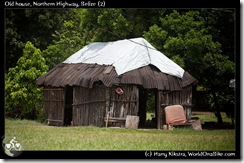 The chip-sealed road did not change much all the way into Belize City. We passed some small towns, old houses that were mostly looking like they could collapse any day, while the lawns were trimmed neatly as for a garden contest. It was a strange mix of poverty and a spacious country.
The chip-sealed road did not change much all the way into Belize City. We passed some small towns, old houses that were mostly looking like they could collapse any day, while the lawns were trimmed neatly as for a garden contest. It was a strange mix of poverty and a spacious country.
We were surprised that though Belize offers all kinds of fruit and food possible, none of it is being sold on the side of the road, as happens everywhere in Mexico.
The shops –and many restaurants- in the towns are mostly Chinese owned; the tasty pupusas on the streets are made and sold by Salvadorians, the handicrafts by Guatemalans, the food produced by the Mennonites and the ‘eco-resorts’ owned by imported Europeans and US-Americans. The ‘Belizeans’ seem to prefer to just swing around in their hammocks instead.
None of the rich mix of fruits and vegetables that is still somehow produced in Belize seem to make it to the local shops though and the restaurants mainly serve a variation (‘fry’ chicken, ‘fry’ beef or ‘fry’ fish) of ‘Rice & beans’.
Belize City, not so relaxed
We were warned that though most of Belize country is quite relaxed, Belize City is where all the criminals of the country seem to congregate. Though it was not as bad as foretold, it was definitely annoying to walk and cycle in a city that will turn everybody into a racist within moments.
All the shops seem to be owned by Chinese who try to make an honest living and are generally friendly. 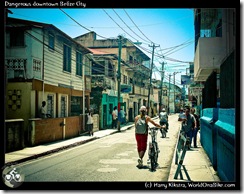 The streets in front of the shops are filled with young black males though, many of them either stoned or drunk (this is during day time) and most (!) of them trying to take my sunglasses, bicycle, money and whatever they could get their hands and eyes on. At least they did not use any violence, but simply ‘asked’ for it.
The streets in front of the shops are filled with young black males though, many of them either stoned or drunk (this is during day time) and most (!) of them trying to take my sunglasses, bicycle, money and whatever they could get their hands and eyes on. At least they did not use any violence, but simply ‘asked’ for it.
‘Hey man, lemme try those shades man’, while already reaching with both hands for my sunglasses which I was, well, wearing.
‘Gimme that bike man, it looks expensive my friend’, ‘Gimme some money man..’; ‘MMhheuuyww, yyeahh, hhmm?’ and similar Creole expressions.
Others tried to touch/grasp/take us and the few things we were carrying without saying much, which is just as annoying.
We were staying with a friendly CouchSurfing host named Jorge, a dermatologist, originally from Nicaragua. He took us to a nice area of town in the evening, but the moment we got our of our car, we were immediately approached and harassed by yet another ‘relaxed’ dude and apparently this was ‘normal’.
When walking back to his house the next night we felt not just annoyed, but threatened when two young guys on bicycles circled around us and then tried to block our way on the sidewalk without saying anything. Fortunately we were already in front of Jorge’s house by then, and could slip through his front gate without confronting them.
All in all, nothing bad actually happened, while we walked and cycled around town several times, so I guess you could say that it is a ‘safe’ city. But the general atmosphere is negative and threatening and too many young black males seem to live of ‘being relaxed’ and are trying to make easy money.
At least we did not encounter any violence as was reported in the local newspapers, where armed robberies, rapes and muggings were daily stories even in a small city like this (with only about 70,000 people living there). Maybe it was not me who was being racist, but the ‘homeless people themselves are’, as the great Chris Rock once pointed out in yet another inventive display of his inverted logic, ‘as somehow there are no Chinese or Gay homeless people’…
It was time to pick up my sister and nice from the airport as they were going to stay 2 weeks with us. Let’s see if the rest of the country would be friendlier than this seedy city.
Day 375-380, 21-26July 09: Interviews, fever, topes, laguna: down to Belize
October 17, 2009 by Harry,
Filed under Trip reports, North America, Mexico, Yucatan Peninsula
Happy B-day to me! My 2nd one on this trip and likely not the last… But there were a lot of things to do, no time to celebrate. I woke up with a very sore throat, but reckoned that it was he airco’s fault and did not think much of it.
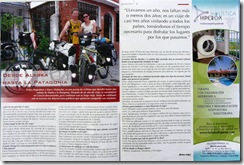 Ivana & I took our mums back to the airport in two separate transfers and then went over to Veronica & Hector to collect our stuff. We could have stayed with them again, but we had to get started to Belize, where my sister would arrive in 8 days time, so we said goodbye to our good friends that had helped us out so much.
Ivana & I took our mums back to the airport in two separate transfers and then went over to Veronica & Hector to collect our stuff. We could have stayed with them again, but we had to get started to Belize, where my sister would arrive in 8 days time, so we said goodbye to our good friends that had helped us out so much.
Hector took a nice photo of us outside their home and sent us an article in a magazine a while later, if you read Spanish you can click on the mage to the right to read it:
Hector also did a video interview, which can be seen here, in 2 parts on the video & interview page (in Spanish mostly).
The wind-gods were merciful for our first day on the bike in about a month, and we cruised the 70km Playa del Carmen in less than 4 hours. My throat did not feel so bad, but I was starting to get a huge headache, so I took one of the new migraine pills that Cristi had taken from Argentina. It did not get much better.
Our CouchSurfing host Ulises –who even spoke some Dutch thanks to his GF- had another guest coming and we went to pick her up together in the crazy downtown of PdC. Back home I crashed completely, with a big fever as an addition to the migraine, and could not appreciated the veggie ceviche that Ulises made as I would normally do. I stumbled to bed and felt hot and cold at the same time, not sleeping or resting much and awoke feeling I had plundered a cheap tequila bar the night before.
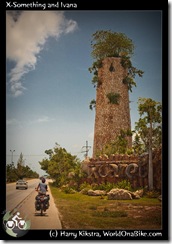 Ulises offered us to stay another day to recover, but as we did not have many spare days and it was only 45km to Tulum, we headed out. It was flat and boring again and we passed yet more places starting with an ‘X’ and containing ‘zip lines’ and other ‘eco-adventures’ like ruining the jungle with quads.
Ulises offered us to stay another day to recover, but as we did not have many spare days and it was only 45km to Tulum, we headed out. It was flat and boring again and we passed yet more places starting with an ‘X’ and containing ‘zip lines’ and other ‘eco-adventures’ like ruining the jungle with quads.
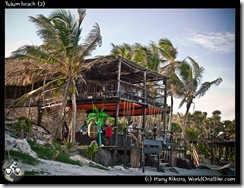 If the resorts do not start with an X, it is Not Maya and Not Fun Nor Adventurous. We were glad we were getting out of the reach of the Zona Hotelera, on the far horizon loomed the real world again…
If the resorts do not start with an X, it is Not Maya and Not Fun Nor Adventurous. We were glad we were getting out of the reach of the Zona Hotelera, on the far horizon loomed the real world again…
But first we planned to do a quick stop in Tulum, where yet another CouchSurfer was waiting.
I was far from a ‘Spanish’ mood. Usually I get tired of speaking, reading and hearing Spanish some time in the afternoon, but now I had already woken up exhausted and was happy that Lianne was Dutch, as my head was exploding and no other tongue worked.
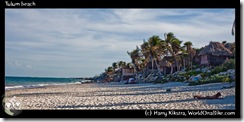 I do not remember much of the following 24 hours as I was sweating, hallucinating and trapped in some lost space-time continuum. Only at the end of the next day I had enough energy to cycle the 3km to the beach, where I had to lie down to recover and we stayed another night with Lianne.
I do not remember much of the following 24 hours as I was sweating, hallucinating and trapped in some lost space-time continuum. Only at the end of the next day I had enough energy to cycle the 3km to the beach, where I had to lie down to recover and we stayed another night with Lianne.
Mexican culture bonus: Topes
We have discussed a lot about Mexico in our recent updates covering the 4 months (!) we crossed the entire country from one side to another. The friendly people, the cities, the culture, the food, the nature.
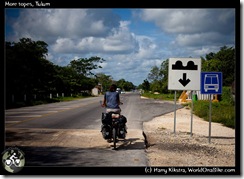 One very important thing I have not mentioned yet, while it is maybe one of the most important and widespread aspects of Mexican history when seeing through a cyclist’s glasses (which are usually a lot clearer than a driver’s glasses :))
One very important thing I have not mentioned yet, while it is maybe one of the most important and widespread aspects of Mexican history when seeing through a cyclist’s glasses (which are usually a lot clearer than a driver’s glasses :))
The Mexican love for speed-reducing things on the roads. As Mexicans are used to the fact that all major roads pass right through the middle of small towns, they are not used to slow down when they are driving and entering a pueblo.
Fines are seldom given and modern radar machinery seems confined to the Mexico DF limits. Threats like that do not work in the more short-term oriented parts of the world anyway, a practical and immediate solution was needed.
So they created bumps. Not those sissy bumps you see in the rest of the world, but real, car wrecking bumps in all shapes and sizes. Some of these, like the ones above are no problem for us as they are smooth. But the serious ones can really break your bike if you are not prepared and do not almost stop completely. I guess that is the point, though a bit moot for bikes.
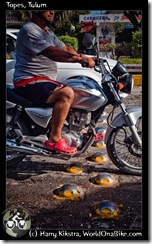 Some newer variations include 1-3 rows of metal domes, firmly attached to the ground. Sometimes local villagers (the ones that are not living in a 25 meter radius of the tope (Toh-puh)) manage to remove just enough so they can pass their vehicles at full speed, but most of the time they cover the entire road.
Some newer variations include 1-3 rows of metal domes, firmly attached to the ground. Sometimes local villagers (the ones that are not living in a 25 meter radius of the tope (Toh-puh)) manage to remove just enough so they can pass their vehicles at full speed, but most of the time they cover the entire road.
Whereas in the Netherlands, they would leave a gap for bicycles to pass safely, in Mexico this would invite drivers to use that gap. Actually even the shoulders of the road, so usually the topes are extended all the way across the dirt on the side. Some of the metal ones are quite dangerous, as the only ‘safe’ way to cross them on a bicycle is to approach them in a 45 degree angle and aim well. This is already a decent challenge, but of course in heavy traffic it takes on other dimensions – you also exit at the same angle if you managed not to fall over, so either while entering or exiting you end up in the middle of the lane.
If your angle is a few degrees off, your grip on the handle bars is not firm or the topes are too close together, there is a big chance you drop in front of some hungry diesel-stricken wheels. You can get off the bike and walk, but after the 4600th tope in a row, this gets old. Be warned for this authentic part of Mexican culture and you will still be amazed.
24th July 2009: Tulum to Felipe Carrillo Puerto, 90km
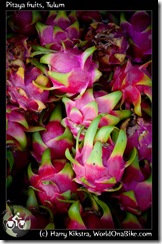 By now we had to hurry more than we wanted, but at least the roads through the stats of Quintana Roo are mostly flat, so it is easy to make some miles.
By now we had to hurry more than we wanted, but at least the roads through the stats of Quintana Roo are mostly flat, so it is easy to make some miles.
It was hot though and though I felt a bit better, I was cursing a lot when I got a flat in the middle of the hot day and it came off . I already hated my new back tire. The old Schwalbe Marathon tyre was actually still good after almost 11,000km/ 7000miles, but my mum had brought a new foldable version, that I had left with her in The Netherlands before departure. Normally I am a firm believer in the ‘if it ain’t broke, don’ fix it’ adagio, but as we had never replaced any tires and I still had another foldable tyre, I decided to change the back one on my bike.
I love the Marathons and the foldable is very useful as it fits neatly on the bottom the Ortlieb bags, but it is much better if they stay there. They are a royal pain in the saddle-sored behind to get on the wheel the first time and it does not get much easier after that. I do not like the fact that I had more flat tires in the first week of using them than the first 6 months of the other one, it seems that there are more differences between the 2 types beside the missing metal wire to make it foldable.
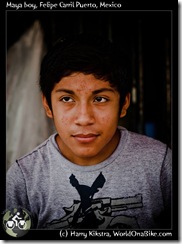 Just before reaching the town I had gotten another flat that I could not fix as one tube exploded when the foldable tire went outside the rim when almost fully inflated. The spare tube we were carrying somehow got a hole on the inside of the wheel and would not hold on to the patches.
Just before reaching the town I had gotten another flat that I could not fix as one tube exploded when the foldable tire went outside the rim when almost fully inflated. The spare tube we were carrying somehow got a hole on the inside of the wheel and would not hold on to the patches.
As one local motorist had already said that the Police would be able to help if needed, we decided that Ivana would cycle ahead and I would wait for her to return with the cops. Within 20 minutes a police pick-up came up to me and stopped on the side of the road. I walked up to them with my bike, but first had to identify myself.
‘What is your name?’ The officer asked surprisingly.
When I told him, he carefully compared my answer with the name that he had written in his notebook when Ivana told him about me. It took a minute or so, but after I also told him where I was from and that I really was the one that had sent Ivana for them to pick me up, he finally nodded and let me load Kowalski in the back. Apparently there were a lot of long-haired blond Dutchmen with a fully loaded bike with a flat tire just outside of the city limits and they had to take care not to pick up the wrong one…
Unlike the name suggests, FC Puerto does not have a harbour as it is inland. It is named after a revolutionary Zapatista from Mayan descent, who even had governed here for a short while. The city is still considered as a Maya ‘capital’ and the look and feel showed us that we had left the rich zone of Mexico.
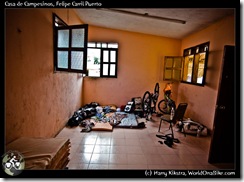 Finding a place to camp in the spacious city with lawns everywhere turned out to be a bureaucratic problem. The police decided that it was not safe to camp with them and took us and our bikes to the Firemen. After long discussions on the radio with lots of code numbers (they seemed to have a special code for stranded Argentinean/Dutch BikeTravellers) it was decided that, no, we could not sleep inside or outside the fire station, either.
Finding a place to camp in the spacious city with lawns everywhere turned out to be a bureaucratic problem. The police decided that it was not safe to camp with them and took us and our bikes to the Firemen. After long discussions on the radio with lots of code numbers (they seemed to have a special code for stranded Argentinean/Dutch BikeTravellers) it was decided that, no, we could not sleep inside or outside the fire station, either.
Meanwhile we had lost hours and it had become pitch dark, while I was feeling exhausted again. We finally ended up in the ‘Casa de Campesinos’, a small building with some mattresses, used by the local farmers coming from far away villages. I finally got to fix my bike while Ivana found some food and though we had the room to ourselves it was too hot to sleep properly…
25th July 2009: FC Puerto – Bacalar – 10km + a ride
After getting freshly squeezed juice and new tubes at the local bike shop, we headed out of the city. There were some very minor hills, and it was still relatively cool, but I totally crashed after 10km. Not in the sense of falling over or introducing Kowalski to a passing truck, but I simply could not cycle anymore. The flu had come back, I was overheating and could hardly sit down without passing out.
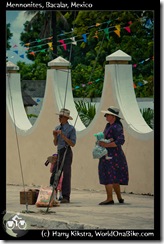 After a while a pick-up truck passed that picked us, well, up and took us all the way to Bacalar, almost 100km away. It not only saved me from committing high-temperature velocipedal suicide, but also took a lot of pressure off, distance- and time-wise.
After a while a pick-up truck passed that picked us, well, up and took us all the way to Bacalar, almost 100km away. It not only saved me from committing high-temperature velocipedal suicide, but also took a lot of pressure off, distance- and time-wise.
Bacalar is one of the Pueblos Magicos, a list of 27 towns and cities in Mexico with special cultural or religious backgrounds, and that leave their visitors with a special feeling; in a positive way that is. We had only been to one other Magic Town, Patzcuaro, and that one was nice.
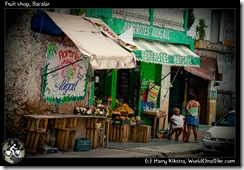 Bacalar was less spectacular, but maybe it would have been better without a flu.
Bacalar was less spectacular, but maybe it would have been better without a flu.
The centre is nice and they have a wonderful multicoloured lake where Ivana spent some hours floating, while I was resting in the cool breeze coming off it.
We stayed with Codrut, a friend of a CouchSurfing host in Bacalar. I spent most of the time resting and recovering and took a huge dose of anti flu and migraine pills. We decided to sleep outside on the porch, just on our mattresses as again it was too hot to be inside, and this time it wasn’t just me…
Here are some pix, so it might give you an idea of why so many gringos have bought all the land surrounding the lake:
Leaving Mexico for Belize
As Etta James would sing: At last.
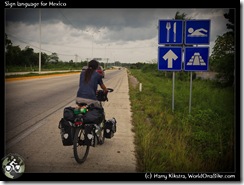 But not with a feeling of relief, but with a little pain in our hearts, homesickness to a new home. We had spent 4 months in this amazing place and though we literally crossed it from North West to South East and from Sea level to the highest peak, after 3000km/1900Mi of cycling and more than 1300km of rides we still felt we had only tasted a drop of the cultural and natural waterfall Mexico has to offer.
But not with a feeling of relief, but with a little pain in our hearts, homesickness to a new home. We had spent 4 months in this amazing place and though we literally crossed it from North West to South East and from Sea level to the highest peak, after 3000km/1900Mi of cycling and more than 1300km of rides we still felt we had only tasted a drop of the cultural and natural waterfall Mexico has to offer.
We were very happy to be able to tell our friends and family that we had zero real problems. I might have had the (swine?) flu, nearly overdosed on tasteless tortillas at times; we had some of the hottest nights in our lives and Ivana almost got run over by a truck.
We also met hundreds of kind people, saw historic sights, swam in sinkholes, felt like Indiana Jones, ate the best food, overdosed on fruits we had never even heard of before, camped in the desert, sailed between dolphins, visited magic towns, enjoyed the lazy beach life and climbed a glacier to the highest point between Canadian Mount Logan and Pico Cristobal Colon in the Columbian Andes.
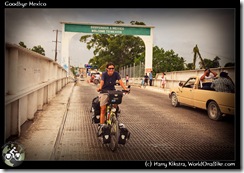 We hope to come back to Mexico some day, not to see a little bit of the rest this country has to offer, but also to meet our dozens of good new friends again.
We hope to come back to Mexico some day, not to see a little bit of the rest this country has to offer, but also to meet our dozens of good new friends again.
Thank you, Mexico.
Next stop: Belize!
Day 368-375, 15-21 Jul 09: Mums in Mexico pt.3: Isla Mujeres
October 1, 2009 by Harry,
Filed under Trip reports, North America, Mexico, Yucatan Peninsula
The Island of Women
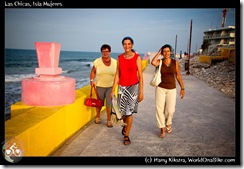 The ‘Isla Mujeres’, the Island of Women, could have been named after the wives of the pirates that frequented the seas and left their women on this safe island, or after the Mayan Goddess Ixchel, who has been worshipped here.
The ‘Isla Mujeres’, the Island of Women, could have been named after the wives of the pirates that frequented the seas and left their women on this safe island, or after the Mayan Goddess Ixchel, who has been worshipped here.
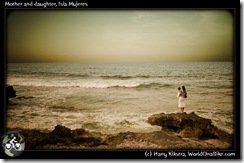 Nowadays, it can refer to the ladies living or the many visiting here, coming from nearby Cancun or from all over the world. so what is there to do on Isla Mujeres? Not much and that is exactly the point.
Nowadays, it can refer to the ladies living or the many visiting here, coming from nearby Cancun or from all over the world. so what is there to do on Isla Mujeres? Not much and that is exactly the point.
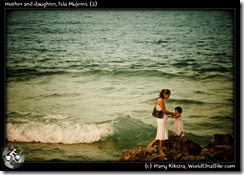 Not the busy smelly traffic of downtown Cancun, not the mega-clubs, drunk teenagers and inflated prices of the Zona Hotelera. Not even the mega cruise-ships that frequent Isla Cozumel stop on the 8km (5mi) long island that is in places only 100m wide and never wider than 1km (0.6mi).
Not the busy smelly traffic of downtown Cancun, not the mega-clubs, drunk teenagers and inflated prices of the Zona Hotelera. Not even the mega cruise-ships that frequent Isla Cozumel stop on the 8km (5mi) long island that is in places only 100m wide and never wider than 1km (0.6mi).
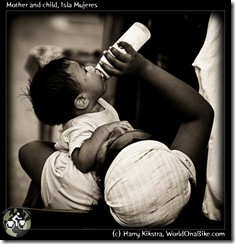 There are enough souvenir shops to keep you busy for several hours, you can rent a golf-cart to see the Southern part of the Island, but most people just come for the beach. Isla’s North beach (actually starting at the North-West) has white sands (crushed coral) with warm and clear green/blue waters.
There are enough souvenir shops to keep you busy for several hours, you can rent a golf-cart to see the Southern part of the Island, but most people just come for the beach. Isla’s North beach (actually starting at the North-West) has white sands (crushed coral) with warm and clear green/blue waters.
Nothing more and nothing less. As long as you are staying in Isla Mujeres Town, you can do everything on foot and if you are very active, you can see all the streets in one day, leaving the rest of your stay to relax!
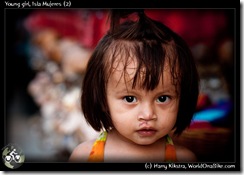 As we were still on a tight budget, but did not want to camp, I had come into contact with Gladys Galdamez from www.islabudgetrentals.com.
As we were still on a tight budget, but did not want to camp, I had come into contact with Gladys Galdamez from www.islabudgetrentals.com.
She had some more affordable options, but as they were still too much for us, I proposed to take some photos for her websites and house in exchange for housing and she accepted. So below are a lot of photos, some of which will also be found on her website 🙂
Life on the beach on Isla Mujeres
Pictures say more than words:
Running around the Isla with Hector & Veronica
As Isla is only a 20 minute boat ride away from Downtown Cancun, we had invited Hector & Veronica to come over to join us. They joined us on the beach for a while and then did their evening training on the island, one running while the other cycled and coached. I joined them on their other bicycle which was also a good excuse to see more of the Southern part of the island.
Here you go:
A taste of downtown Isla Mujeres
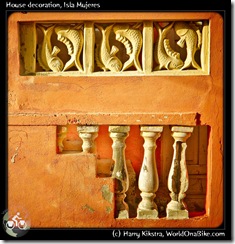 Isla Mujeres town is nothing more than a few streets, several restaurants and shops. One supermarket, a Central Plaza with a church and a basketball field complete the town.
Isla Mujeres town is nothing more than a few streets, several restaurants and shops. One supermarket, a Central Plaza with a church and a basketball field complete the town.
You can board for snorkelling tours, eat ice-cream, pancakes, hummus, pizza or tacos and tortas on the main square. Salesmen will try to sell traditional and less-traditional clothes and handicrafts, while tourists zoom past on the rented golf carts.
In the evening the streets are sparsely lit, the restaurants open and you might hear some nice live music from some of the older inhabitants of Isla Mujeres, a welcome change from the Mariachi-hell (pep-peppe-pep-pep!) of the rest of tourist-Mexico.
More life on a beach
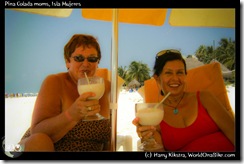 We spent most of our time on the beach. The mums were enjoying the sea and the two for one cocktail promotions (every hour on the beach is happy).
We spent most of our time on the beach. The mums were enjoying the sea and the two for one cocktail promotions (every hour on the beach is happy).
Though I like to swim, I get restless after an hour or so, unlike Ivana, who is perfectly happy floating on her newly-found air-mattress for several hours at a time.
Fortunately our room (my office) all the way on the other side of town was only 10 minutes walking away and there was always an excuse to take another photo.
Here are some:
Old Isla Mujeres & Miss Abuelita
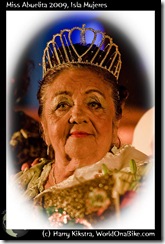 There is not much left of the old fisherman town, where people enjoyed their turtle soup. even though it is low key, tourism had changed everything. Still there are a few original houses to be found, preserved in bright paint.
There is not much left of the old fisherman town, where people enjoyed their turtle soup. even though it is low key, tourism had changed everything. Still there are a few original houses to be found, preserved in bright paint.
We were on the island for a festival in honour of one of the popular tourist attractions and endangered species that lives close to the island: the whale shark, a friendly whale-sized shark.
On the last evening the main attraction was presented: the election of Miss Abuelita, roughly translatable as Miss Granny 🙂
5 local ladies showed their local dress, evening gowns and their views of life in a heated battle. The jury had a hard time…
Birthday in Cancun and goodbye to the mums…
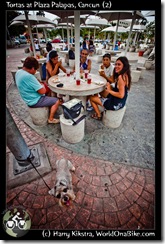 It was time to head back to the mainland, as both the mums would fly out to Argentina/Netherlands early the next morning.
It was time to head back to the mainland, as both the mums would fly out to Argentina/Netherlands early the next morning.
We invited Hector & Veronica for some tortas on the Palapas Square and started packing.
My mum had brought great new tiny summer sleeping bags from Carinthia. All our winter gear, including our warm Carinthia sleeping bags and down jackets, gloves, boots and several smaller pieces were going with Ivana’s mum to Argentina. We were planning to see them again somewhere around Peru.
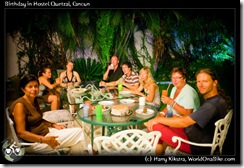 It was 20th of July, meaning that it would be my birthday at midnight. we had bought some cakes and some booze and had hired one of the friends of the Quetzal Hostel to mix up some mean mojitos and Pina Coladas to go along with it. It was a nice goodbye to our mums, who had flown halfway across the globe to see us.
It was 20th of July, meaning that it would be my birthday at midnight. we had bought some cakes and some booze and had hired one of the friends of the Quetzal Hostel to mix up some mean mojitos and Pina Coladas to go along with it. It was a nice goodbye to our mums, who had flown halfway across the globe to see us.
We had seen and done a lot in the past 3 weeks. It had not always been easy, we are so used to our own way of life and our mums are not 🙂
Also many times it was clear that the cultural differences between the Dutch and Argentinean way of life that had taken Ivana and me more than 3 years to -partly- overcome were very strong between our mums, sometimes leading to stress. But over all it was great to be able to share a part of our adventure and the wonderful world we live on with them and it was sad to say goodbye.
We actually had another vacation ahead of us as my sister and niece were going to land in Belize City in about 8 days to stay with us for 2 weeks. As it was over 500km from Cancun, it was time to pack the bikes again!
Intermezzo: Anniversary: one year on the road
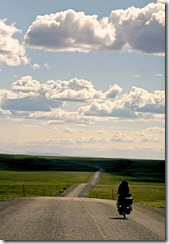 While we were watching the locals dance on Isla Cozumel I realized that exactly a year ago we had started out in Prudhoe Bay, Alaska, more than 10,000km/6250mi North-West of here. One of the main paradoxes of time showed itself, as it seemed light-years away, while it also felt like we only started yesterday.
While we were watching the locals dance on Isla Cozumel I realized that exactly a year ago we had started out in Prudhoe Bay, Alaska, more than 10,000km/6250mi North-West of here. One of the main paradoxes of time showed itself, as it seemed light-years away, while it also felt like we only started yesterday.
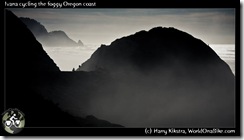 But the 200+ posts including more than 1300 pictures that I have published on this blog in the past year tell a different story, though they only scratch the surface of our real trip.
But the 200+ posts including more than 1300 pictures that I have published on this blog in the past year tell a different story, though they only scratch the surface of our real trip.
We saw glaciers, deserts, giant trees, volcanoes, canyons, ancient cities & pacific waves, cycled past bears, 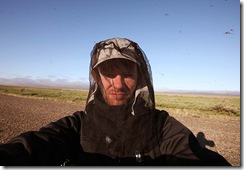 foxes, wolves, eagles, deer, elephant seals, snakes and lizards, while being eaten by mosquitoes and ants.
foxes, wolves, eagles, deer, elephant seals, snakes and lizards, while being eaten by mosquitoes and ants.
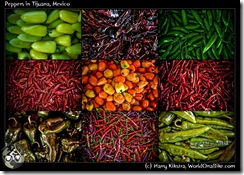 We have eaten spaghetti many days in a row but also have tasted and enjoyed more different fruits and other foods than we can recall.
We have eaten spaghetti many days in a row but also have tasted and enjoyed more different fruits and other foods than we can recall.
We met old friends again and made countless new ones. 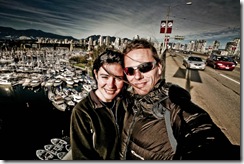 We have been inspired and inspired others in return. We have seen poverty and wealth and experienced the kindness of people, irrespective of nationality, income, colour, religious or sexual preference.
We have been inspired and inspired others in return. We have seen poverty and wealth and experienced the kindness of people, irrespective of nationality, income, colour, religious or sexual preference.
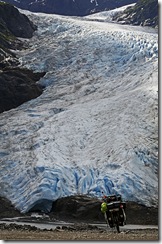 We switched from laughing to crying and back hundreds of times, screaming of happiness and cursing each other and our circumstances, often on the same day. We roughly planned our route before leaving, but all the best experiences were encountered without warning or preparation.
We switched from laughing to crying and back hundreds of times, screaming of happiness and cursing each other and our circumstances, often on the same day. We roughly planned our route before leaving, but all the best experiences were encountered without warning or preparation.
We have been part of a Native potlatch, played with a fox, camped in the desert, hugged trees, won our dinner in las Vegas, climbed mountains and sailed between dolphins. Meanwhile, thanks to the wonder called Internet I worked in a hundred different rooms in this giant office called Earth.
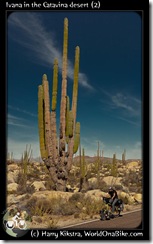 Our trusty Santos bikes have taken us all the way without problems. Even though we have been rained and hailed upon, blown off the road by side winds, camped in the snow and the freezing cold and cycled in 45+ degrees Celsius/113F, overheating at night. We cycled 160km on one day while I could not walk from pain a few months before, ready to quit. We have climbed the equivalent height of Mount Everest 10 times, many times pushing the bikes while doing it.
Our trusty Santos bikes have taken us all the way without problems. Even though we have been rained and hailed upon, blown off the road by side winds, camped in the snow and the freezing cold and cycled in 45+ degrees Celsius/113F, overheating at night. We cycled 160km on one day while I could not walk from pain a few months before, ready to quit. We have climbed the equivalent height of Mount Everest 10 times, many times pushing the bikes while doing it.
We have been alive, a full year, which is more than many people have been in their life. Oh, and we probably burned less than 3 gallons of fuel and likely spent less than USD $5000 in the process.
This is a huge amount of money for most of the world’s less fortunate population, but often blown away in mere weeks, days or even minutes by others on short-term rewards.
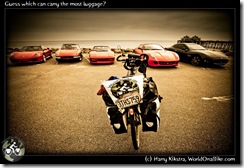 Our experiences have been more luxurious than any car-upgrade, more rewarding than any grand bottle of wine, and definitely longer lasting than any ounce of substance sniffed up the nose that might have cost the same.
Our experiences have been more luxurious than any car-upgrade, more rewarding than any grand bottle of wine, and definitely longer lasting than any ounce of substance sniffed up the nose that might have cost the same.
The only problem is that life is even more addictive than all of these…
Thanks for joining us on our journey. Thank you for supporting us, helping us out where needed in person and in mind, urging us to write more, asking where and how we are, commenting on the site and writing us your emails, letting us know how you are. Thank you for dusting off your bicycle and making a difference. Thank you for hosting us and other travellers, it means so much more than a place to sleep or eat.
You are special and we feel thankful for having had the opportunity to share a tiny part of your life and for the way you are now forever part of ours.
As said, it feels we only have just begun…
Day 361-367, 7-14 Jul 09: Mums in Mexico pt.2: Playa, more ruins & Isla Cozumel
September 28, 2009 by Harry,
Filed under Trip reports, North America, Mexico, Yucatan Peninsula
As mentioned in the previous post, we have parked our bikes for a few weeks as both our mums are visiting us on the Yucatan Peninsula. After the ruins of Chichen Itza & Ek Balam, it is now time for the beach!
Playa del Carmen, overcrowded and overrated
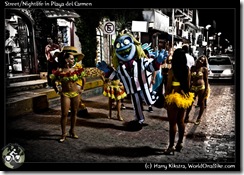 “Don’t go to Cancun, move to Playa de Carmen!”, was the advice of friends, websites and guidebooks. “More European, more relaxed, less commerce and more affordable than Cancun.”, were the reasons given.
“Don’t go to Cancun, move to Playa de Carmen!”, was the advice of friends, websites and guidebooks. “More European, more relaxed, less commerce and more affordable than Cancun.”, were the reasons given.
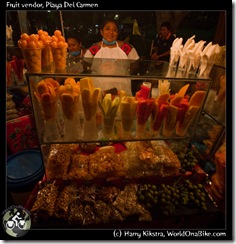 We arrived in our rental car and first could not park anywhere to find a hostel.
We arrived in our rental car and first could not park anywhere to find a hostel.
Finally we found a spot, only to find much more expensive hotels than in downtown Cancun. Once we found a decent room (3 beds, Ivana & I can share), we checked out the main street. It was filled to the top with souvenir shops and overpriced restaurants and hundreds of semi-relaxed tourists, many of them, yes, European. Large clubs and uber-cool lounge bars were promoted, while Guatemalan art was being sold for western art gallery prices.
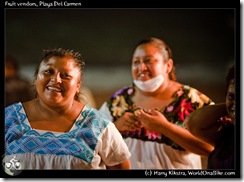 Finally we discovered some real food for almost downtown Cancun prices, sold on the streets close to the Central Plaza. Great juice and tortas, the Mexican sandwiches with a choice of meat and/or vegetables and different types of very spicy and tasty sauces.
Finally we discovered some real food for almost downtown Cancun prices, sold on the streets close to the Central Plaza. Great juice and tortas, the Mexican sandwiches with a choice of meat and/or vegetables and different types of very spicy and tasty sauces.
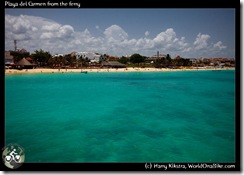 Just a bit ahead were the local fruit ladies selling nice big bags of mixed cut fruits for less than half of the price of a glass of water in a restaurant of the main street.
Just a bit ahead were the local fruit ladies selling nice big bags of mixed cut fruits for less than half of the price of a glass of water in a restaurant of the main street.
The beach is very nice at Playa and the water is green-blue as in the brochures, but it’s like that all along the Costa Maya.
The girls were happy with the sea and sand, but I rather wanted to use the last day we had a car to see one more ancient Maya City and took off alone.
More ruins, Coba solo
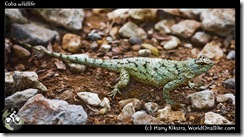 Coba has the same charm that Ek Balam has and that Chichen Itza is lacking: the ‘Indiana Jones’ sense that you are discovering the ancient hidden cities yourself while strolling through the lush Jungle.
Coba has the same charm that Ek Balam has and that Chichen Itza is lacking: the ‘Indiana Jones’ sense that you are discovering the ancient hidden cities yourself while strolling through the lush Jungle.
The structures of Coba are not as neatly organised and lined up as in Chichen Itza. From the first group, which contains the large ‘Templo de las Iglesias’, the temple of the Churches, it is more than a kilometre walk through the jungle if you want to see some of the other big ones.
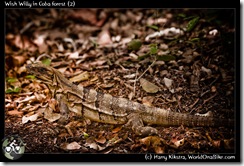 Several dozen sacbe’s, ancient Mayan road crossed the surrounding jungle to get to Coba, an important hub in times gone by. Only a few percent of the estimated 6500 (!) structures of Coba have been excavated, and many of these not even fully and the jungle has remained intact, which is good news for the many different animals living there.
Several dozen sacbe’s, ancient Mayan road crossed the surrounding jungle to get to Coba, an important hub in times gone by. Only a few percent of the estimated 6500 (!) structures of Coba have been excavated, and many of these not even fully and the jungle has remained intact, which is good news for the many different animals living there.
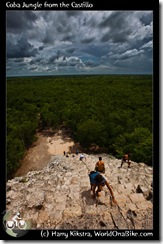 It is hot in Coba, even in the shade of the trees and for those who do not want to walk the sacbe’s there are many eco-taxis handy: bicycles & rickshaws!
It is hot in Coba, even in the shade of the trees and for those who do not want to walk the sacbe’s there are many eco-taxis handy: bicycles & rickshaws!
The largest Maya structure (of the entire Peninsula) is called Nohoch Mul, better known as the Great Pyramid and its eroded steps leading to the 42m (140ft) high top can fortunately still be climbed. 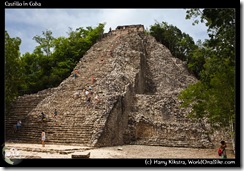 A thick rope is attached to help the brave people down that made it up and realized that it was quite high and the steps narrow and down-sloping 🙂
A thick rope is attached to help the brave people down that made it up and realized that it was quite high and the steps narrow and down-sloping 🙂
There will be several persons on the Pyramid, but the views are great: jungle as far as the eye can see. The sweet views are spiced with the knowledge of the thousands of hidden treasures still to be found.
Tulum: busy ruins and empty beach
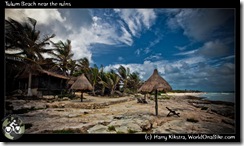 I was just too late to make a quick visit to the most popular Maya ruins: Tulum. As it is close to Cancun and Playa de Carmen, and the site is open and compact, bus loads of tourists come here every day.
I was just too late to make a quick visit to the most popular Maya ruins: Tulum. As it is close to Cancun and Playa de Carmen, and the site is open and compact, bus loads of tourists come here every day.
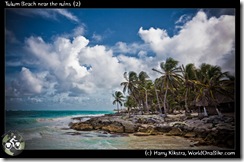 I saw a huge line of them coming out of the exit and caught a glimpse of the famous Castillo, with its postcard location on the edge of the sea. I was not allowed in, but used my time to view some nearby rough beaches, totally deserted.
I saw a huge line of them coming out of the exit and caught a glimpse of the famous Castillo, with its postcard location on the edge of the sea. I was not allowed in, but used my time to view some nearby rough beaches, totally deserted.
It was time to return to Playa de Carmen and head over to our next destination: an island!
Isla Cozumel, CouchSurfing and anniversary on the divers and cruise-ship paradise
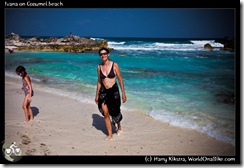 One part of our way of travelling that we wanted to share with our mums was the use of the CouchSurfing and WarmShowers network, where travellers host other travellers. We managed to find a great host on the Island of Cozumel, that agreed to host all 4 of us.
One part of our way of travelling that we wanted to share with our mums was the use of the CouchSurfing and WarmShowers network, where travellers host other travellers. We managed to find a great host on the Island of Cozumel, that agreed to host all 4 of us.
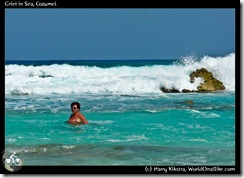 Ivan not only provided us with a great place to sleep, but also gave us a quick tour of the rough east side of the diver’s paradise, with some great swimming beaches and blowholes. The next day he took Ivana, Cristi and myself for a nice little snorkel tour, while my mum relaxed in a hammock near a pool. Life should not get much harder than this 🙂
Ivan not only provided us with a great place to sleep, but also gave us a quick tour of the rough east side of the diver’s paradise, with some great swimming beaches and blowholes. The next day he took Ivana, Cristi and myself for a nice little snorkel tour, while my mum relaxed in a hammock near a pool. Life should not get much harder than this 🙂
It was wonderful to have such a perfect example of a great CouchSurfing host to demonstrate to our mums a taste of the hospitality we have encountered all over Mexico, USA and Canada, made possible by the technology and the mentality of our generation, but which has spread far beyond that.
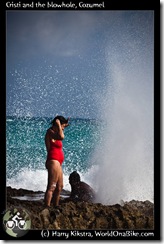
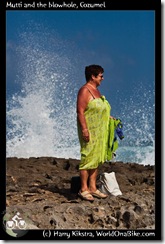
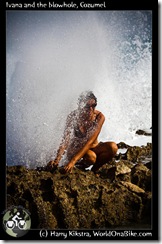 –
–
Cozumel is a popular stop for huge cruise-ships and we saw many pass during the few days we were there. But to see further than the shopping tours along the silver-shops and the basic restaurants, you need to spend some days there.
For example it gives you the chance to see the local Sunday dance on the main square, where the local couples dress up and play to the music of a live band, while the sun sets behind a blue and purple sky.
Next and final part of the Mother-ship series coming up: An Island of Women!
Stay tuned, it will be up and running soon as long as the Internet gods are willing 🙂
Day 354-360, 30Jun-6Jul 09: Mums in Mexico pt.1: Ruins & Cenotes!
September 26, 2009 by Harry,
Filed under Trip reports, North America, Mexico, Yucatan Peninsula
Photos: relaxing in Cancun
We started our holiday with a few days in a Hostel and some visits to the beach as well as the nice local park. The park is not visited much, but is basically a part of original jungle in the middle of the city. It has some great trails, a turtle pond, many lizards walking around and we even saw a snake.
Off to the Maya Ruins: Chichen Itza!
Of course you cannot visit Central America without visiting at least some of the ancient Maya cities. Cancun is quite close to Chichen Itza, maybe the most famous city of them all, especially after a huge marketing campaign managed to get it entered as one of the new 7 wonders of the world.
We had rented a cheap car for a week, so we could tour around for a while, leaving the beaches for later. Our mums experienced a hint of our way of life when we told them that they could only take 1/3 of their luggage –as more did not fit in the tiny car- and that they would see the rest only in a week 🙂
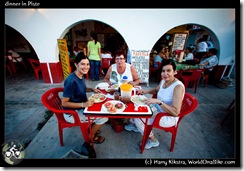 There is a wonderful new highway from Cancun to Chichen Itza, but we only found out why it was so deserted (we saw 2 cars in 200km), when we needed to pay over USD 20 in toll fees, close to the exit. Now we understand why Francisco and the other truckers all choose the ‘Libre’ road instead.
There is a wonderful new highway from Cancun to Chichen Itza, but we only found out why it was so deserted (we saw 2 cars in 200km), when we needed to pay over USD 20 in toll fees, close to the exit. Now we understand why Francisco and the other truckers all choose the ‘Libre’ road instead.
The mums got another taste of our trip when we booked them in a small but cheap guesthouse, with 3 beds in a dusty and very hot room in Piste, the town next to the old Maya City. We had arrived in the afternoon, so we had time to have some dinner and go to Chichen Itza for the evening show. 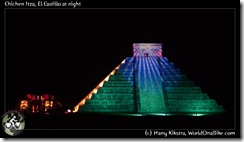 Most people do not see this as they come on day trips from Cancun & Merida, but every evening the main structures are illuminated at sunset, while a set of voices tell about the history and legends of Chichen Itza.
Most people do not see this as they come on day trips from Cancun & Merida, but every evening the main structures are illuminated at sunset, while a set of voices tell about the history and legends of Chichen Itza.
The Spanish whispering was a bit too much for me, but it was nice to sit in the fresh breeze while the most famous main structure, the temple of Kukulkan, better known as ‘El Castillo’ -the castle- turned form green to purple.
Here is a photo impression (click to enlarge, more photos in the photo section here).
Souvenirs & Cenotes
Of course the place is stuffed with souvenirs and other semi-local handicrafts. The sacbe number 1, the ancient Mayan road, leading to the ‘cenote’ was lined with vendors. The Yucatan peninsula is lined with Cenotes, which can be anything from a large pond to a huge underground cave filled with water. The soft limestone base of the peninsula combined with tropical rainfall had created these holes and many of them were either sacred or at least an important water source.
The cenote at Chichen Itza was found to contain several artefacts and bones, it was clearly used as a sacrificial place. Some more pix 🙂 :
Swimming in the Cenotes
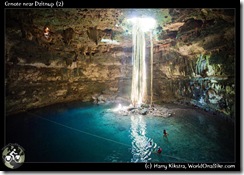
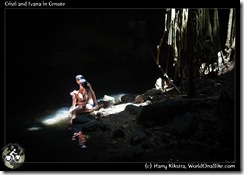
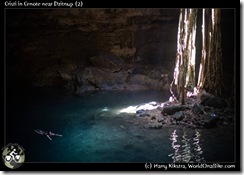 Not all cenotes are closed to the public. In fact there is a large tourism sector focused on either swimming in them or even exploring them while diving, as many are connected by underground rivers. We stuck to swimming in a couple, with the first one being close to the town of Dzitnup.
Not all cenotes are closed to the public. In fact there is a large tourism sector focused on either swimming in them or even exploring them while diving, as many are connected by underground rivers. We stuck to swimming in a couple, with the first one being close to the town of Dzitnup.
The cenote is inside a huge a cave, but it had a hole on top where sunlight shines through. next to the hole grows a tree and it roots come all the way down to the water, a magic place for sure..
Jungle ruins: Ek Balam
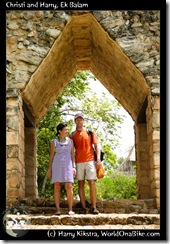 The ruins of Chichen Itza are the most famous, but its popularity has caused some downsides. You can no longer climb on El Castillo as a tourist had fallen to her death a few years ago and the sheer number of visitors can cause irreplaceable dame to the structure.
The ruins of Chichen Itza are the most famous, but its popularity has caused some downsides. You can no longer climb on El Castillo as a tourist had fallen to her death a few years ago and the sheer number of visitors can cause irreplaceable dame to the structure.
Also most of the other structures are off-limits now, meaning you can only see them from a (short) distance.
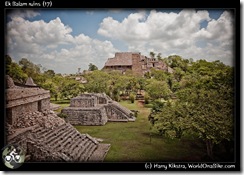 Therefore it was nice to visit a much ‘newer’ site, Ek Balam. Largely unknown for mass tourism, but with some impressive structures, of which the 2nd and 3rd largest are still unexcavated and buried by the force of nature.
Therefore it was nice to visit a much ‘newer’ site, Ek Balam. Largely unknown for mass tourism, but with some impressive structures, of which the 2nd and 3rd largest are still unexcavated and buried by the force of nature.
The highest structure, known as the Acropolis, can be climbed on its narrow and sloping steps, offering great views over the site and the surrounding jungle.
Somehow, it felt more ‘real’ being here compared to Chichen Itza. An impression:
X’Canche & Genesis: Swimming and relaxing in Ek Balam
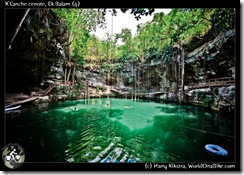
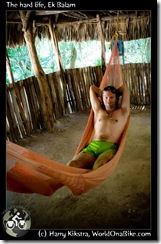 Ek Balam had one bonus: it has an open Cenote (meaning open to the public, you still have to pay an entrance fee) a 15 minute walk from the ruins.
Ek Balam had one bonus: it has an open Cenote (meaning open to the public, you still have to pay an entrance fee) a 15 minute walk from the ruins.
This one was open, but also had many roots growing into it, as well as many fishes and plant and we enjoyed the cooling water as well as the collection of free hammocks nearby.
We had spent a few days in the wonderful Genesis Resort in the nearby village of Ek Balam, run by Lee Christie. A nice oasis in the dry surroundings, it had a great swimming pool and evens some bike for rent. In exchange for a discount on the price of the room, we cleaned and fixed the bikes, so that they were safe again 🙂
On the road again
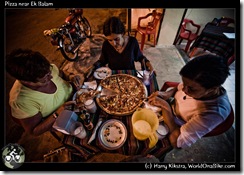 After a huge pizza in a nearby village, and some clothes testing for Pablito and Pedrito, it was time to hit the road again. Not to the ruins and beaches of Coba & Tulum as planned, but back to Cancun, this time on the libre road. Ivana had to undergo a second part of a dental treatment, as part of her tooth had broken off the day our mums arrived.
After a huge pizza in a nearby village, and some clothes testing for Pablito and Pedrito, it was time to hit the road again. Not to the ruins and beaches of Coba & Tulum as planned, but back to Cancun, this time on the libre road. Ivana had to undergo a second part of a dental treatment, as part of her tooth had broken off the day our mums arrived.
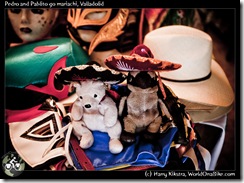 It was fixed ok, but the next problem was that both Cristi as well as myself developed a rash on our legs and arms, there must have been something in the Cenote water, though Ivana had no problems.
It was fixed ok, but the next problem was that both Cristi as well as myself developed a rash on our legs and arms, there must have been something in the Cenote water, though Ivana had no problems.
It was time to hit the other famous parts of the Yucatan Peninsula: the beaches!


